2025 Summer Program Participants
Click on the profiles to take the journey with each 2025 participant.
|
|
Where are students have been interactive map

Diego Roque Aguayo
This summer I had the opportunity to complete my Global Programs externship in Tepatitlán, Jalisco, Mexico which is a small pueblo outside of Guadalajara. Even though the pueblo is small, it is bursting with color, tradition, and some of the kindest people I’ve ever met. Living there during the summer reminded me of my roots and gave me a deeper appreciation not only for the culture, but also for the way veterinary medicine is practiced in different parts of the world.
Click to read more →

Gloria Bercerra Cortes
This summer, I had the privilege of traveling to Cotacachi, Ecuador, to work with the Amici Cannis Foundation. From the moment I arrived, I was warmly welcomed by the veterinary team, the locals, and even the community street dogs. At the heart of the community is the Amici Cannis Hospital de Animales—a full-service hospital that takes a holistic approach to caring for some of Ecuador's most vulnerable people and animals.
Click to read more →

Mandy Chan
This summer, I traveled to Taiwan for my veterinary clinical externship, rotating through the departments of Rehabilitation and Integrative Medicine, Exotics, Surgery, and Internal Medicine at NTU’s veterinary hospital. In rehabilitation, I observed acupuncture, laser therapy, hydrotherapy, and Chinese herbal medicine as common treatment options for geriatric or cancer patients with chronic pain. These integrative approaches highlighted how Eastern and Western practices can complement each other in veterinary medicine.
Click to read more →
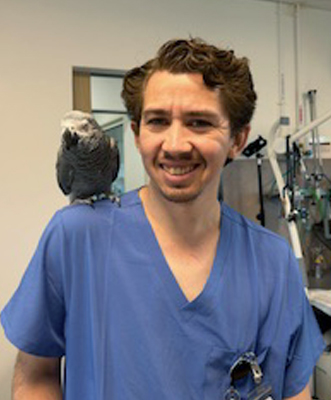
Christian Guerzon
My experience in Paris is one that I will surely remember for the rest of my life. When I arrived, I was happily greeted by mentor Minh Huynh who graciously let me stay in his home over the summer. During my initial day he took me to the market to pick up groceries where he informed also about how high-quality foods had to come through France before being distributed throughout Europe. It was amazing for me to see the market and how it served the immediate community.
Click to read more →

Sterling Hart
I traveled to the beautiful country of Rwanda and spent 7 weeks working with veterinarians at the University of Rwanda and New Vision Veterinary Hospital. While I was there, I was able to assist with sample collections for part of a 3 year research project in Akagera National Park aiming to collect more data on the current levels of antimicrobial resistance in wildlife and domestic species.
Click to read more →

Claire Hibbett
This summer I spent about 7 weeks as a veterinary intern at the Cheetah Conservation Fund located near the town of Otjiwarongo in North-Central Namibia. For me, this experience was surreal as I remember coming across a previous student’s summer experience at CCF as I was applying for vet school and learning more about UC Davis. I thought this opportunity looked incredible, but I was unable to imagine myself in their shoes. Now, I am so glad I decided to apply and was able to spend my break in such a unique and beautiful country and with such an important organization.
Click to read more →

Tan Ho
This past summer, I had the opportunity to travel to Japan for my externship project, thanks to the generous support of the Global Program. With the guidance of Dr. Lynette Hart and Dr. Takuo Ishida, I developed a research project to explore the approaches of veterinarians to euthanasia in Japan where euthanasia is a culturally sensitive topic. I had a chance to meet Dr. Takefumi Kikusui who introduced me to several animal hospitals in Tokyo. I had an eye-opening tour at their facilities and interviewed the veterinarians about their approaches to euthanasia.
Click to read more →

Abigail Hsu
This summer, I had the privilege of participating in Global Programs at UC Davis School of Veterinary Medicine. I flew across the Pacific Ocean with my friend and classmate, Liana Kruger-Moore, to visit the Phetchaburi province of central Thailand. While in Phetchaburi, Liana and I volunteered at Wildlife Friends Foundation Thailand (WFFT). The foundation features four projects centered around animal health and a mission to rescue, rehabilitate, and release.
Click to read more →

Liana Kruger-Moore
This past summer, I had the incredible opportunity to travel to the Tha Yang district of Thailand and volunteer for three weeks with Wildlife Friends Foundation Thailand. I spent one week each with the wildlife hospital, wildlife rescue center, and elephant refuge, and met other volunteers and employees from around the world. The foundation takes in, rehabilitates, and often releases wild animals that have been exploited for human use.
Click to read more →

Lauren Lee
This past summer, I had the opportunity to return to South Korea, my home country, for the first time in nearly five years. This experience allowed me to reunite with my family and engage in meaningful cross-institutional research in veterinary ophthalmology and clinical training in veterinary clinics uniquely shaped by the culture.
Click to read more →

Sooyoung Lee
This past summer, I had the immense pleasure to visit my home country, Korea, to participate in a 2 week externship at the Ophthalmology department at Seoul National University (SNU) and 2 week rotating externship at VIP Animal Medical Center (AMC), Seongbuk branch. While I was born and raised in Korea, most of my veterinary experiences were from the United States, which led me to pursue this experience to get exposed to the veterinary culture in Korea.
Click to read more →

Tontong Liu
This summer, I was fortunate to participate in a three-week global externship at the University of Teramo in Italy, hosted by the Department of Veterinary Medicine. My primary project focused on feline parasitology, particularly investigating the clinical relevance of lungworm infections in cats. This opportunity not only expanded my clinical understanding but also reshaped how I view veterinary medicine in a global, interconnected context.
Click to read more →

Sarah Lok
This summer, I had the immense privilege of participating in a three-week internship at El Hospital de Especies Menores y Silvestres (HEMS) in Heredia, Costa Rica. HEMS is a large referral and teaching hospital associated with the Universidad Nacional (UNA) veterinary school, treating small animals, exotics, and wildlife. I chose this site because of its diversity of specialties and the opportunity to strengthen my medical Spanish, and it proved to be one of the most formative experiences of my veterinary education so far.
Click to read more →

Luke Mase
This summer, I did a clinical externship with the Dublin Zoo in Ireland as well as exploring the One Health operations of University of College Dublin (UCD) through the support of the UCD Squared Transatlantic One Health Alliance. Over the two weeks at the Zoo, my classmate Noah McNaughton designed quarantine protocols such as importing meercat residents internationally for the Zoo.
Click to read more →

Maddie McDougal
This past summer I spent 3 weeks at the National University of Colombia, Bogota, Veterinary School. During the first part of the trip I spent time as an extern in the Large Animal Hospital. I loved getting to learn how the students' experiences overall had so many parallels with our own, as well as getting to see their daily activities such as doing treatments, preparing for and attending rounds, and handling emergencies.
Click to read more →
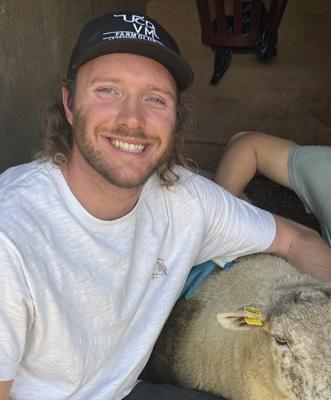
Noah McNaughton
Traveling to Ireland was an experience I had never anticipated for myself. Nor was it a location for a clinical externship I would have ever considered without the assistance of Global Programs. During my time externing at the Dublin Zoo and University College Dublin, I had exposure to zoo medicine, livestock medicine, and genetic research investigating disease outbreaks.
Click to read more →

Ivan Melchor Mendez
This summer I traveled to South Dakota with Equitarian Initiative as part of my Global Programs externship. EI is a nonprofit that partners with communities to improve the health of working horses, donkeys, and mules by mobilizing volunteer veterinarians, providing training, and delivering basic care where it’s needed most. It was my first time outside California and my first time working with horses, so I arrived excited and a little nervous.
Click to read more →

Hannah Morton
This summer, my fellow UC Davis student Maddie McDougal and I had the opportunity to visit the large animal clinic at La Universidad Nacional de Colombia in Bogotá, Colombia. We completed a combined clinical and research externship, incorporating clinical experience at the hospital and investigation into local seroprevalence of Equine Protozoal Myeloencephalitis.
Click to read more →
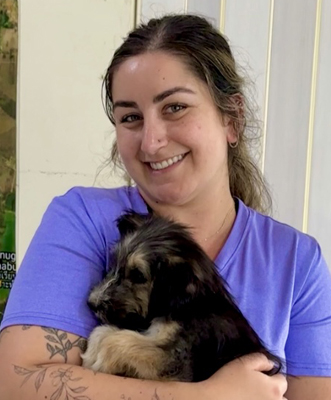
Saya Nei
During the summer of 2025, I had the opportunity of a lifetime through Global Programs to travel with one of my classmates to Thailand, where I spent two weeks at the People and Animal Thailand clinic in Cha-Am and one week at the Wildlife Friends Foundation Thailand organization.
Click to read more →

Aurea Ocampo
This summer, I spent three weeks in Thailand volunteering with People and Animals Thailand (PAT) and Wildlife Friends Foundation Thailand (WFFT)! These experiences honestly deepened my understanding of veterinary medicine and cross-cultural engagement.
Click to read more →

Jasmine Pena
This summer I had the privilege of spending several weeks in Jalisco, Mexico, working alongside local veterinarians to provide low-cost veterinary services to families in the community. The town I spent time in is called Encarnacion de Diaz, also known as La Chona. La Chona is a small rural town that relies on local farmers to supply the majority of their food.
Click to read more →

Timothy Reilley
Over the summer, I spent a month in San Juan del Sur, Nicaragua, living with a local family and working at Seaside Clinica, which offers spay/neuter services and basic veterinary care to a community with no other veterinarians within an hour’s reach. The clinic partners with SOS Animales, a local rescue, to treat and rehome sick or abused animals.
Click to read more →

Everado Sanchez
This last summer I had the incredible honor and privilege to volunteer and live under the Japan Cat Network (JCN) in Kyoto. During my time there, I was able to indulge in the beautiful and historically rich city and got to meet so many amazing people at the JCN, throughout Kyoto, and even some parts of Japan.
Click to read more →

Kellie Sugihara
This summer, I had the privilege of traveling to the Eastern Cape of South Africa. My goal was to gain hands-on experience with wildlife to help me in my future career as a zoo veterinarian. I chose South Africa because I would be able to see animals roam freely in their natural habitat. I spent my first two weeks doing a course called Vets Go Wild on Amakhala Game Reserve.
Click to read more →

MinMin Sun
This summer, I completed a three-week veterinary externship at Utrecht University’s Faculty of Veterinary Medicine in the Netherlands through UC Davis Global Programs, supported by a generous scholarship. It was a deeply transformative experience that combined clinical learning with cultural immersion, and gave me a much broader view of what veterinary medicine can look like across the globe.
Click to read more →

Gabrielle Van der Gaag
This summer, I participated in the Vets Go Wild program on Amakhala Game Reserve in South Africa, an immersive experience that integrated veterinary medicine, conservation, and community engagement. Over several weeks, I worked alongside wildlife veterinarians and conservationists, gaining hands-on experience with some of the world’s most endangered species. I assisted with the immobilization, monitoring, and sample collection of various antelope species, buffalo, giraffe, big cats, and white rhinoceros.
Click to read more →

Christy Wang
Over the summer, I externed at National Taiwan University Veterinary Hospital for 5 weeks, rotating through 4 different departments.
Click to read more →

Betty Yang
Similar to previous summers, this summer I traveled back to my hometown, Guangzhou, China. Unlike previously where I spent the majority of the time traveling with my family and visiting relatives, this summer I gained insights on shelter medicine and animal welfare in China, and improved my scientific literacy.
Click to read more →
Past Summer Externship & Fellowships
- 2024
-

Montserrat Armero
I chose to complete a 3-week externship with the Universidad CES in Envigado, Colombia which is a town that borders the large city of Medellín. My mother emigrated from Colombia in the 1980’s due to the safety concerns that she experienced at the time. This trip gave me the opportunity to reconnect with my heritage, offering new personal and professional relationships.
Click to read more →
Melody Bastani
I had the opportunity to spend the month of July at the Toucan Rescue Ranch in Costa Rica. The Toucan Rescue Ranch is a wildlife rescue center committed to the rehabilitation and release of the vast species native to Costa Rica as well as non-native species that have found their way into Costa Rica. These animals are brought to the Toucan Rescue Ranch by environmental government agencies that either confiscate the animals from illegal trafficking/ownership situations or collect injured animals found and reported by locals.
Click to read more →
Ishwinder Battoo
This past summer, I had the incredible opportunity to spend three weeks in Malawi, a beautiful country in Southeast Africa. During my stay at the Lilongwe Wildlife Center, Malawi’s only wildlife sanctuary, I gained invaluable hands-on clinical experience and conducted research alongside veteran wildlife veterinarians. Each morning, I began my day by bottle-feeding orphaned servals, vervet monkeys, and duikers, before moving on to medicate resident patients.
Click to read more →
Sophie Buelow
I traveled to the beautiful country of Rwanda and spent 7 weeks working with veterinarians at the University of Rwanda and New Vision Veterinary Hospital. While I was there, I was able to assist with sample collections for part of a 3 year research project in Akagera National Park aiming to collect more data on the current levels of antimicrobial resistance in wildlife and domestic species.
Click to read more →
Eliana Carmody
This summer, I had the opportunity to participate in a three-week externship with the Wildlife Friends Foundation Thailand (WFFT). WFFT is dedicated to rescuing animals from unethical tourist industries and improving animal welfare throughout Thailand. This externship gave me a valuable chance to put my veterinary skills into practice while gaining insight into global animal welfare and conservation efforts.
Click to read more →
Paige Condy
I was fortunate enough to spend many weeks at The Donkey Sanctuary, Ireland. The Donkey Sanctuary is an organization dedicated to improving the welfare of donkeys worldwide. The Donkey Sanctuary Ireland opened in 1987 and has provided care for over 5,600 neglected and abandoned donkeys across Ireland. Currently, The Donkey Sanctuary Ireland has over 1,700 donkeys and mules in their care across multiple locations.
Click to read more →
Lexi Durant
Last winter break, I had the opportunity to travel to Argentina to work with Dr. Marcela Uhart and Dr. Ralph Vanstreels. I spent most of my time in Camarones, a quiet seaside fishing community, where I was instantly greeted by the beautiful coastlines of Patagonia. Every year, a group of Magellanic penguins spends time at Cabo dos Bahías to lay eggs and raise their chicks. The colony has been declining in recent history and Dr. Gabriela Blanco’s team spends time at the colony every year collecting data on penguin foraging behavior, chick rearing success, and chick growth rates to better characterize the population dynamics.
Click to read more →
Nicole Hensley
This summer, I had the incredible opportunity to spend one month in South Africa where I was able to learn about the biodiversity and conservation efforts being done to protect endangered species and rewild the land. I spent my first week at Hout Bay Veterinary Hospital; a small animal clinic where I worked alongside their wonderful doctors, nurses, and staff. During my time with HBVH, I gained great hands-on experience in the operating room, running diagnostics such as taking radiographs, performing ultrasounds, lung fine-needle aspirates, running all lab work in-house, and performing efficient but thorough physical exams especially on the critical emergency patients.
Click to read more →
Julianna Johnson
As part of my 2024 summer, I had the opportunity to spend the month of July at the Toucan Rescue Ranch in Costa Rica. The Toucan Rescue Ranch is a wildlife rescue center committed to the rehabilitation and release of the vast species native to Costa Rica as well as non-native species that have found their way into Costa Rica. These animals are brought to the Toucan Rescue Ranch by environmental government agencies that either confiscate the animals from illegal trafficking/ownership situations or collect injured animals found and reported by locals. They are extremely focused on treating while maintain the end goal of release back into the wild.
Click to read more →
Minju Kim
This past summer, I had the pleasure to visit my home country, Korea, to study the differences in veterinary practice in Korea and the United States. While working at veterinary hospitals in the United States, I realized that my experiences were different from those that I observed while I grew up in Korea. I felt that veterinary medicine was taken with a different approach in Korea than in the United States, especially regarding euthanasia.
Click to read more →
Alissa Kong
My global experience explored the different cultures and veterinary work styles in Ireland, Scotland, and England. Through living and conversing with people from other English speaking countries, I was able to fully immerse myself in the experience to gain a deeper appreciation for the intricacies of their cultures. In Ireland, I learned about the horse racing industry through working at Gordon Elliott Racing. In Scotland, I attended a British Animal Rescue & Trauma Care Association (BARTA) conference which focused on how different professions (veterinarians, firefighters, police, environmental agencies, etc.) can come together to form a community of practice on how to handle emergency situations involving animals.
Click to read more →
Vandana Krishnan
This summer I got to spend 3 weeks visiting my aunt’s veterinary practice, The Animal Care Clinic, India. I grew up visiting this clinic and have many memories here far before I knew I wanted to be a veterinarian. I remember my aunt showing me around the clinic when I was in elementary school and pointing out the operation theater- I asked her what kinds of movies she plays for the dogs to distract them from their surgeries. Many years and a couple career changes later, it was very special being back at the place that inspired my love for veterinary medicine.
Click to read more →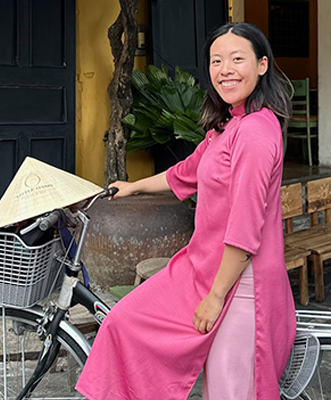
Trish Lai
This past summer, I received the Global Programs Feline Health Fellowship Fund and went to Vietnam to learn how to molecularly characterize and study the epidemiology of an emerging tick borne disease, babesiosis in domestic cats. Throughout this experience, I collaborated with local veterinarians, practiced and improved my Vietnamese, clinical, and laboratory skills, and became exposed to the unique challenges and opportunities in infectious disease research and management within a different cultural and environmental context. I believe that this experience enhanced my veterinary education and also equipped me with skills and perspectives that will transcend into my future career as a veterinarian.
Click to read more →
Anyi Liebler-Bendix
For my summer 2024 Global Programs experience, I had the incredible opportunity to participate in a three-week externship with the Wildlife Friends Foundation of Thailand, or WFFT. This experience took me across two unique projects, each focusing on different aspects of animal welfare and conservation. In Thailand, the traditional concept of a pet dog, like we often see in America, is not as common. Here, many of these dogs are cared for by the local community. Neighbors come together to provide food and shelter for these strays, reflecting a unique and compassionate approach to animal care.
Click to read more →
Amalie Luneng Solli
At the beginning of my second year of veterinary school, I wasn’t sure what I wanted to do with my summer until I read an article that sparked my interest. I learned that Norway has the most conservative use of antimicrobials and immediately knew that I wanted to learn more about what makes their infectious disease management so effective. I reached out to Dr. Jimenez-Melendez at NMBU Veterinary School in the Parasitology Department to form an idea for a summer externship. Together we came up with a plan where I would get to learn about parasite ecology, diagnostic testing, and research from his department in addition to gaining hands-on clinical skills with production medicine.
Click to read more →
Holly Masterson
This summer Holly got to live out her dream of traveling to Africa and working with a conservation organization. Located in Otjiwarongo, Namibia, the Cheetah Conservation Fund (CCF) was founded by Dr. Laurie Marker in 1990 with the goal to save the cheetah. Various CCF programs to reach this goal include raising guard dogs and donating them to local farmers to prevent poaching, production of logs that are made from invasive bush species taking over their natural habitat, and a model dairy goat farm used for teaching about sustainable farming.
Click to read more →
Collin Meyer
This summer, I spent 3 weeks working for a small animal and exotics practice located in Kailua, a town on the windward coast of Oahu, Hawaii. Over my time at Makai Pet Hospital, I was able to experience a wide range of surgical, medical, and holistic cases- improving my technical skills while also learning more about the unique melting pot of Polynesian, American, Japanese, and military cultures present on the Hawaiian Islands. These various groups had different expectations and needs for pet care that played a major part in our daily clinical work.
Click to read more →
Alicia Montano
My time abroad in Italy was a hybrid experience with both animal handling experience as well as participation in research. At the University of Teramo in Italy, I spent half of my time visiting cat colonies in the Abruzzo region to collect fecal and blood samples, and the other half in the lab analyzing them. Exploring these colonies was particularly fascinating, as I hadn't encountered such facilities in the United States. It was heartwarming to see the dedication of the caretakers and to learn that these colonies are supported by the government.
Click to read more →
Jonathan Mui
My global programs project brought me to SingHealth Experimental Medicine Centre (SEMC) and the National Large Animal Research Facility (NLARF). SEMC and NLARF represent Singapore's most comprehensive animal facilities, which are able to tackle the needs and expectations of animals used in research. As an AAALAC International accredited research facility, SEMC and NLARF are fully equipped and licensed to teach proper research protocol and procedures. SEMC and NLARF both play a critical role in the advancement of translational and research medicine used for human patients at Singapore's main governing health body, SingHealth.
Click to read more →
Anh Nguyen
This summer, I spent five weeks in Vietnam learning about wildlife rehabilitation and companion animal care. This experience allowed me to explore a different aspect of my culture and gave me insights into what it is like to be a veterinarian in Vietnam. My journey began with two weeks at Cuc Phuong National Park in Ninh Binh Province. I joined the veterinary team at Save Vietnam’s Wildlife (SVW) to provide medical care and proper husbandry to pangolins, a critically endangered species and one of the most trafficked mammals in the world. Having no prior wildlife experience, participating in conservation efforts and witnessing the challenges firsthand was invaluable to me.
Click to read more →
Nhung Nguyen
Growing up in the States with deep cultural ties in Vietnam, my identity is a bridging cumulation between the East and West. Through the support of Global Programs, this summer I had the opportunity to uncover pieces of identity in my Que Huong, my home country, Vietnam. My time here was primarily a clinical and teaching based experience centered in Hue, a serene imperial city located in the heart of central Vietnam. I connected with my mentor, Dr. Hien Bui, when she visited UC Davis one year prior on a USDA Faculty Exchange. Dr. Bui is a lecturer at the Hue University of Agriculture and Forestry, where I engaged in a transformative academic teaching experience.
Click to read more →
Aditi Nukala
This summer, I went to San Juan Del Sur in Nicaragua for three weeks. I shadowed at a local clinic, Seaside Clinica. Seaside Clinica is the first veterinary clinic in San Juan and assists with the only rescue operation in the area, SOS Rescue. I worked closely with Dr. Roberto and Dr. Fajardo. They taught me how to do surgeries, physical exams, collect samples, interpret diagnostics and ultimately diagnose patients. Dr. Roberto speaks both Spanish and English, and Dr. Fajardo only spoke Spanish. Dr. Fajardo taught me how to do surgeries. I learned to do my first spay and neuter at the practice.
Click to read more →
Rachel Qiao
This past summer, I had the exciting opportunity to fulfill a lifelong dream of mine and spend 16 days in the Eastern Cape of South Africa learning about wildlife medicine through the Vets Go Wild course with 14 other students from around the world. Vets Go Wild is taught by Dr. William Fowlds, an experienced wildlife veterinarian and co-owner of the Amakhala Game Reserve where the course is held. Throughout my time there, I also learned from the wonderful technicians and interns from Ikhala Veterinary Clinic and the knowledgeable safari guides at Amakhala.
Click to read more →
Diego Roque Aguaya
I did my Global Programs Externship in Queretaro, Mexico. I had the incredible opportunity to volunteer and do my research project with RVETS (Rural Veterinary Experience Teaching and Service) Mexico. RVETS Mexico is a non profit organization that provides free veterinary services to rural communities. I was able to work with a variety of species during my externship. Some of these species include dogs, cats, horses, donkeys, mules and cattle. In addition to my clinical experience, I was able to conduct research. My research project consists of assessing the impact of access to care clinics on animals, owners, veterinarians and veterinary students in Mexico.
Click to read more →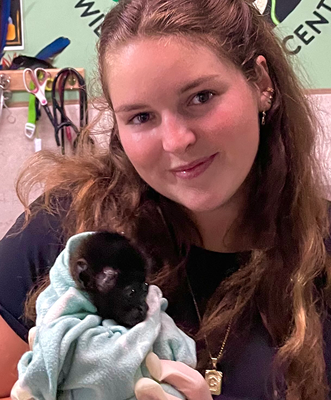
Chloe Stringfellow
Toucan Rescue Ranch is a rescue, rehabilitation and release organization in Costa Rica. Toucan Rescue Ranch operates through a model centered on conservation, education, and research to help secure a brighter future for the country's wildlife. They not only have a working hospital for all incoming injured wildlife, but also have half the facility dedicated to creating a safe space for the non-releasable animals to live out the rest of their lives. The sanctuary area is open for private tours to the public, to teach the public about these wonderful native species and teach the community the importance of conserving these species homes to allow these animals to thrive in their natural habitat.
Click to read more →
Grace Tarantino
This summer I had the pleasure of joining the parasitology department within the school of veterinary medicine at the University of Teramo to conduct research on feline parasites. The primary research project focused on assessing the prevalence of feline lungworm (Aelurostrongylus abstrusus and Troglostrongylus brevior) infections in cats in Italy. Additionally, we investigated coccidia and Giardia infections in cats to explore the correlation between these infections and diarrhea as a clinical sign.
Click to read more →
Carol Wang
This summer, I had the pleasure of traveling to Saraburi, Thailand to join the National Primate Research Center of Thailand at Chulalongkorn University. I had a couple goals for my trip. Primarily, I wanted to gain clinical skills with long-tailed macaques, a species that I had never worked with before. But I was also excited to get hands-on histopathological experience, observe monkeys in their natural habitat, and to understand how different culture and societal perceptions on animal use impact animal research.
Click to read more → - 2023
-
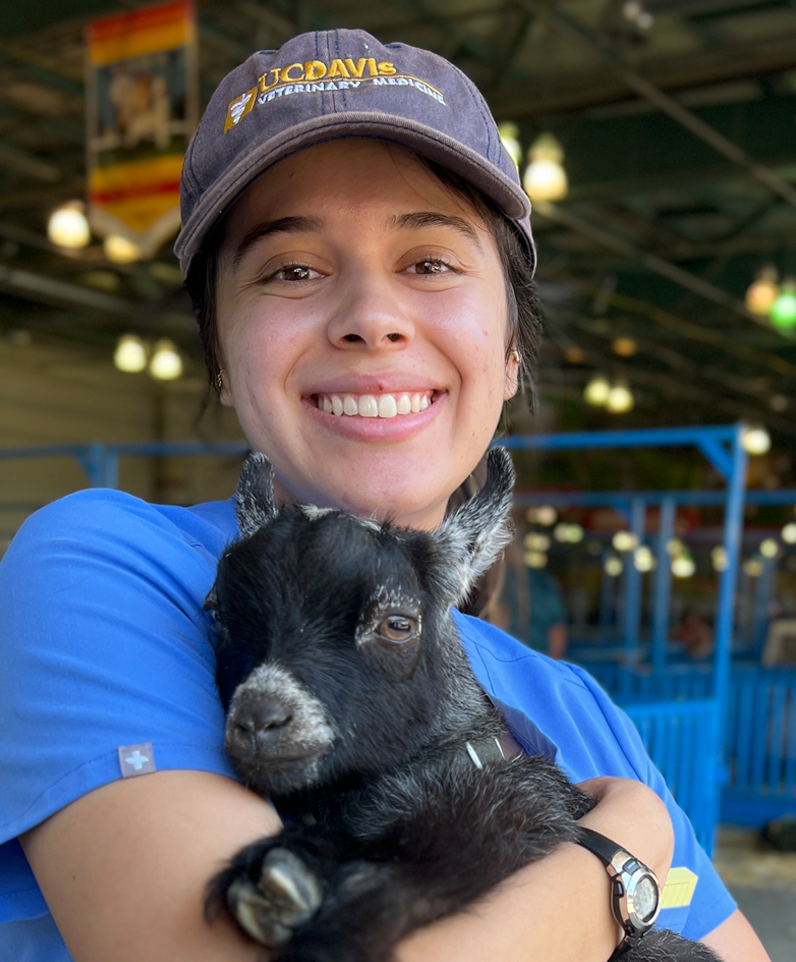
Kimberly Aguirre – Columbus, GA
Though not considered a global destination, Kimberly conducted her research project in Georgia, with the goal of assessing two One Health clinics: the school’s Knights Landing One Health Clinic (KLOHC) in Knights Landing, CA and the People and Pet’s Project in Macon, GA. Both clinics are similar in that they not only offer veterinary services to communities that lack access to care, but also human health services such as free health screenings (blood glucose checks, blood pressure checks, etc.). Kim was able to assist the veterinary team in providing vaccines and other preventive services to families and their pets, and also got to engage with the community and ask them how best to serve them. Kim worked with individuals from People & Pets Project and Mercer University to create a survey to administer at both clinic sites, to help determine if access to free veterinary services for pets motivates individuals to also seek healthcare services for themselves at these One Health clinics. Although Kim did not go far for her global experience, she was still able to engage with diverse communities and increase her cultural awareness.
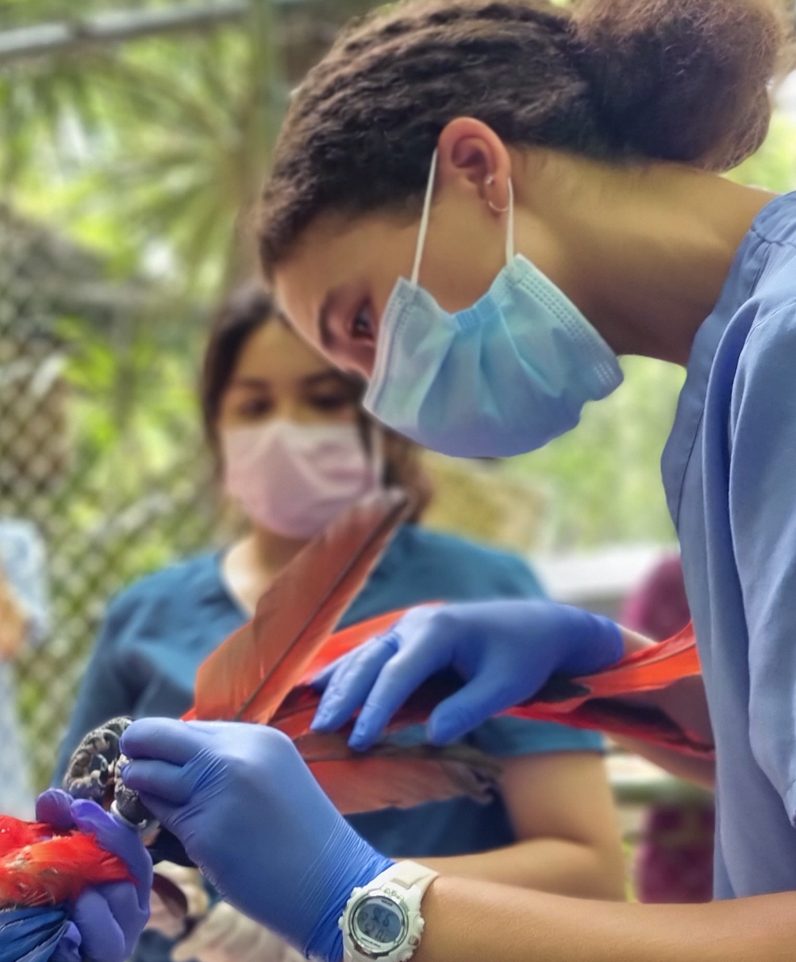
Erin Babinec – Guatemala
Erin spent a once-in-a-lifetime opportunity this past summer at ARCAS, a wildlife rescue and rehabilitation center located in the Guatemalan rainforest along Lake Peten Itza. Every year, ARCAS receives hundreds of animals that have been confiscated from the black market by the Guatemalan government. Erin was assigned an animal cage for which she was responsible for preparing food, feeding, cleaning, and observing. When not maintaining her assigned cage, Erin spent alternating days of classroom lessons and practicals, including performing physical exams and administering any necessary treatments. The hands-on handling of the animals was an amazing introduction to the world of exotic wildlife and through this program, Erin has made some lifelong friends and many unforgettable memories.
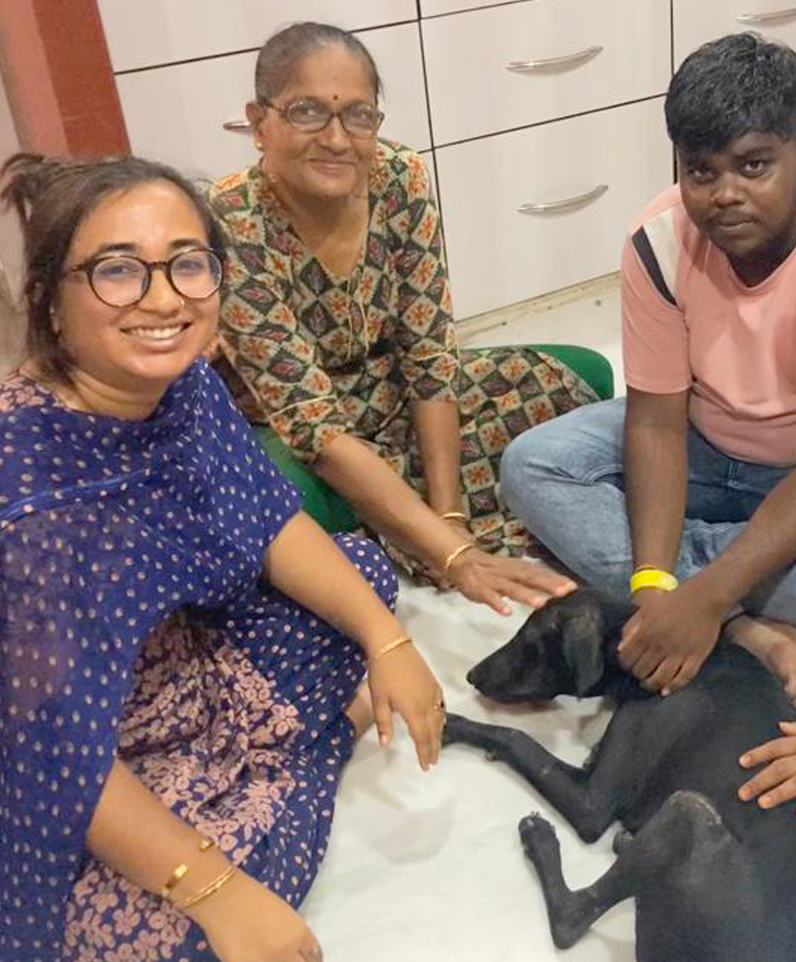
Asiya Bhaisaheb – India
With India having the greatest stray dog populations in the world at over 62,000,000, Asiya spent five weeks in her home town of Vadodara, India studying ectoparasite infestation in street dogs due to its prevalence in stray populations and impact on their quality of life. She performed physical exams and collected skin samples through tape impressions, hair plucking or skin scraping, adjusting my methodology based on the temperament of the animal. She gained invaluable experience in field medicine by collecting samples in less-than-ideal conditions, looking for dogs wherever necessary and using low-stress handling techniques to ensure that they didn't form further negative associations with humans.
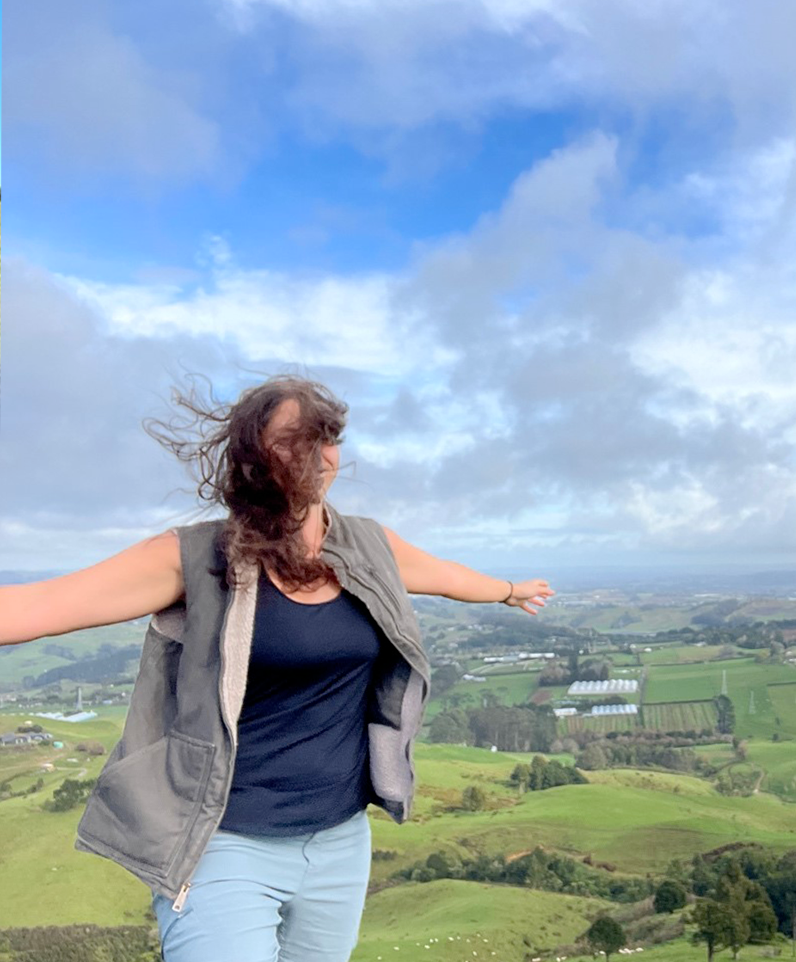
Shoshana Brody – New Zealand
Shoshana has been interested in the dairy industry of New Zealand since she started working in agriculture at 15 years old and this past summer, she got to do just that. She spent two weeks in July externing at Farm Veterinary Matamata (FVM), a six-doctor ambulatory practice located about an hour and a half south of Auckland in an area with extensive dairy production. During this time at the practice, Shoshana participated in the management of a wide variety of cases, even taking the lead on several difficult births. Having stayed with a family that lives in Matamata, this experience increased her cultural awareness by immersing her in the daily life of a New Zealander, where she had traditional meals, and learned about the social and political climate of the country.
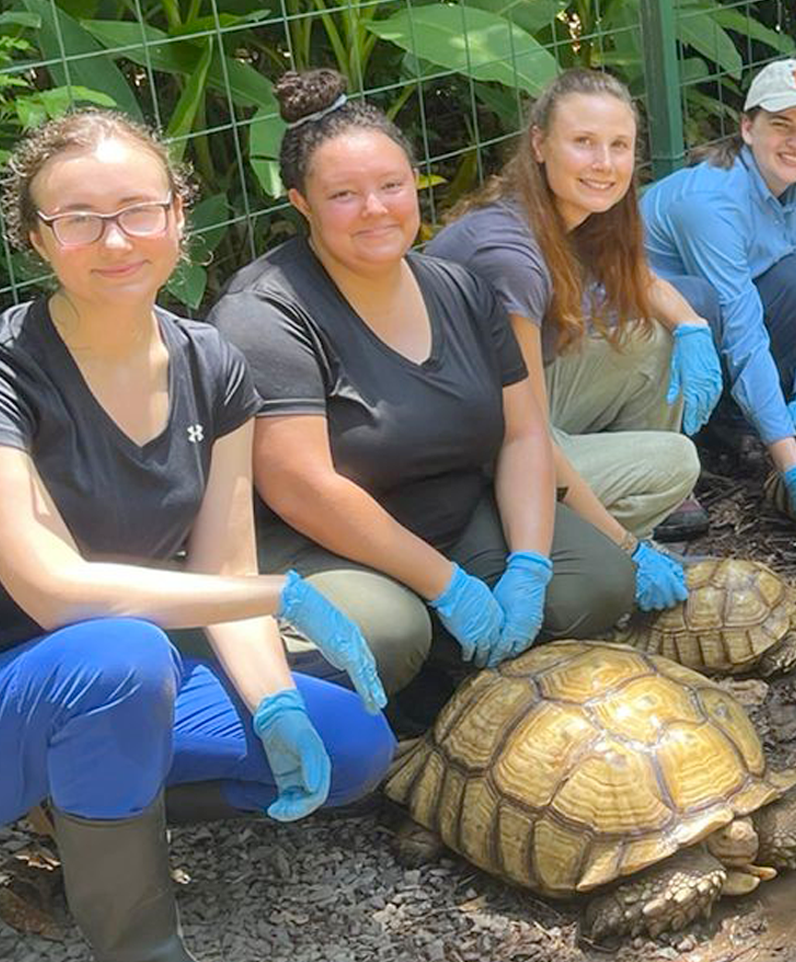
Jaimie Brown – Costa Rica
As an aspiring zoo veterinarian, Jaimie had the privilege of spending two and a half weeks at the NATUWA Wildlife Sanctuary in Puntarenas, Costa Rica. She learned the proper handling, restraint, and methods of performing diagnostic tests for several of the animals including macaws, two-toed sloths, tapirs, and jaguars. She learned to assess clinical cases and weigh the pros and cons of anesthetizing wild animals to determine the best diagnostic and treatment plan. She even got to participate in two necropsies during her time at NATUWA. Through this invaluable experience, Jaimie is now intent on pursuing future opportunities to work with and learn from international colleagues.
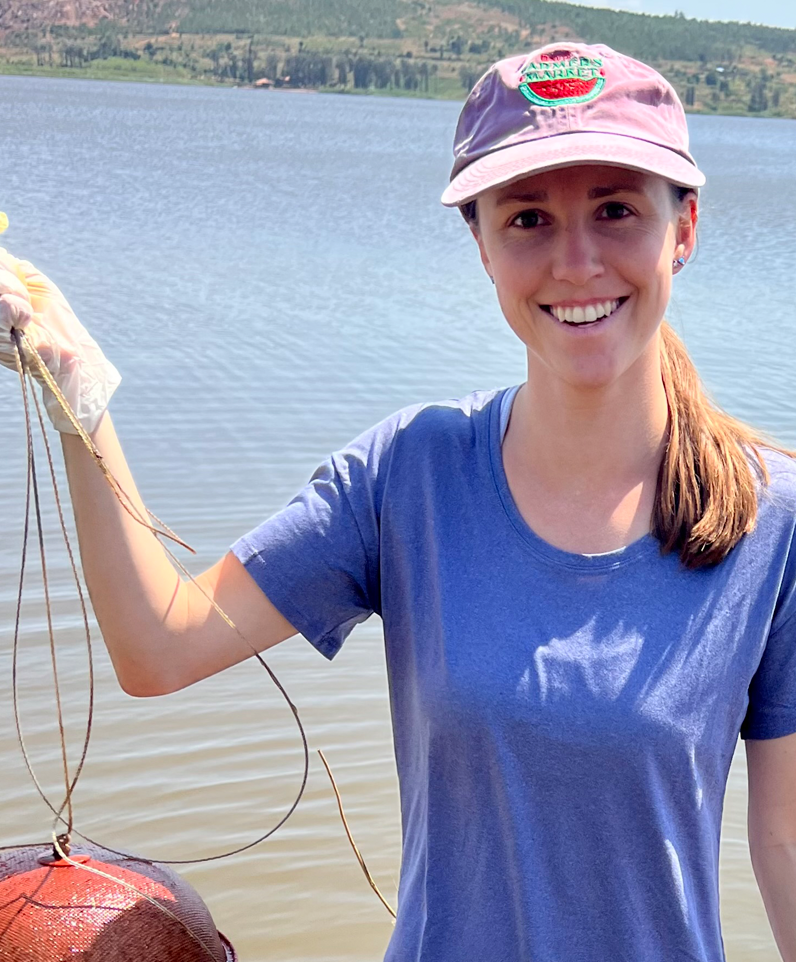
Mollie Brown – Rwanda
Mollie spent three weeks this summer in Rwanda, conducting a One Health environmental toxicology research project. The goal of this project was to assess the environmental health of a vulnerable community in an area of intensive agriculture through sampling for pesticides, harmful algal bloom toxins, and other environmental contaminants. Mollie was also lucky enough to spend a few days shadowing in one of the only two small animal hospitals in the country, which allowed her to see how small animal medicine is practiced there and how it's developing. The time in the hospital after doing research was invaluable as she realized that her passion is truly treating and working with animals in the clinical setting. She was also able to closely watch surgeries, participate in her first dental procedure, and suture her first wound.
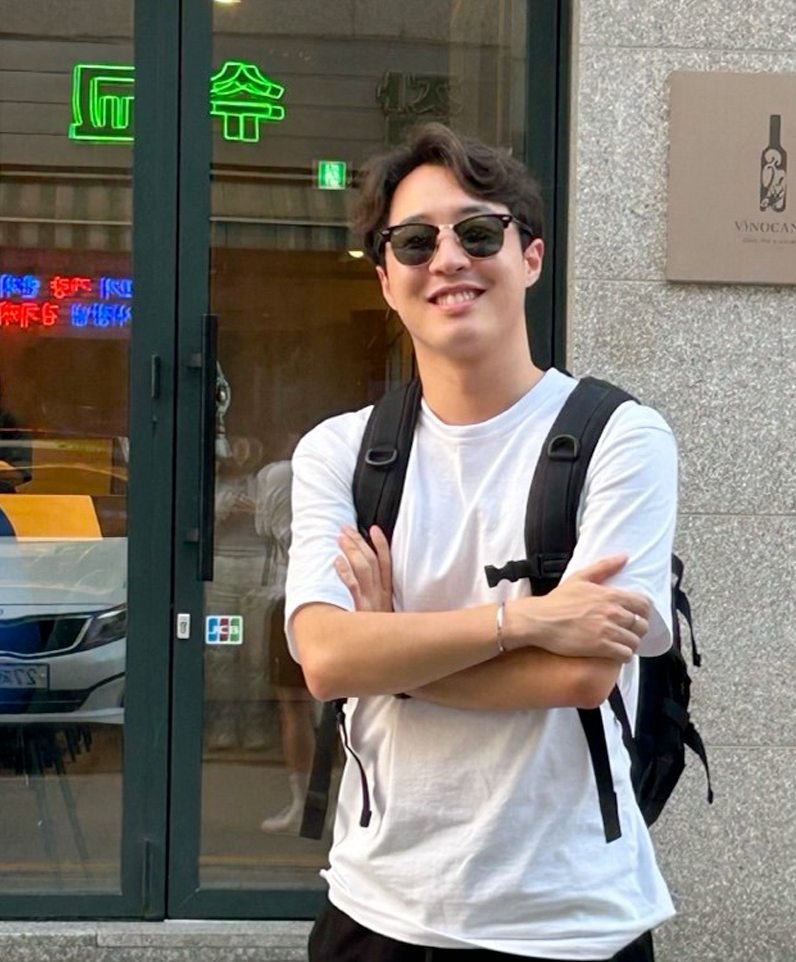
James Choi – South Korea
James spent this past summer in his home country, South Korea, where he participated in a research project that investigated the opinions of South Korean residents on feline pet ownership. He wanted to know whether Korea as a society was ready to compensate for certain concerns such as access to veterinary care, financial costs to owning a pet, and transportation/hygiene issues. James was able to gain much from this experience, such as cultural awareness and connections that he will take on for life.
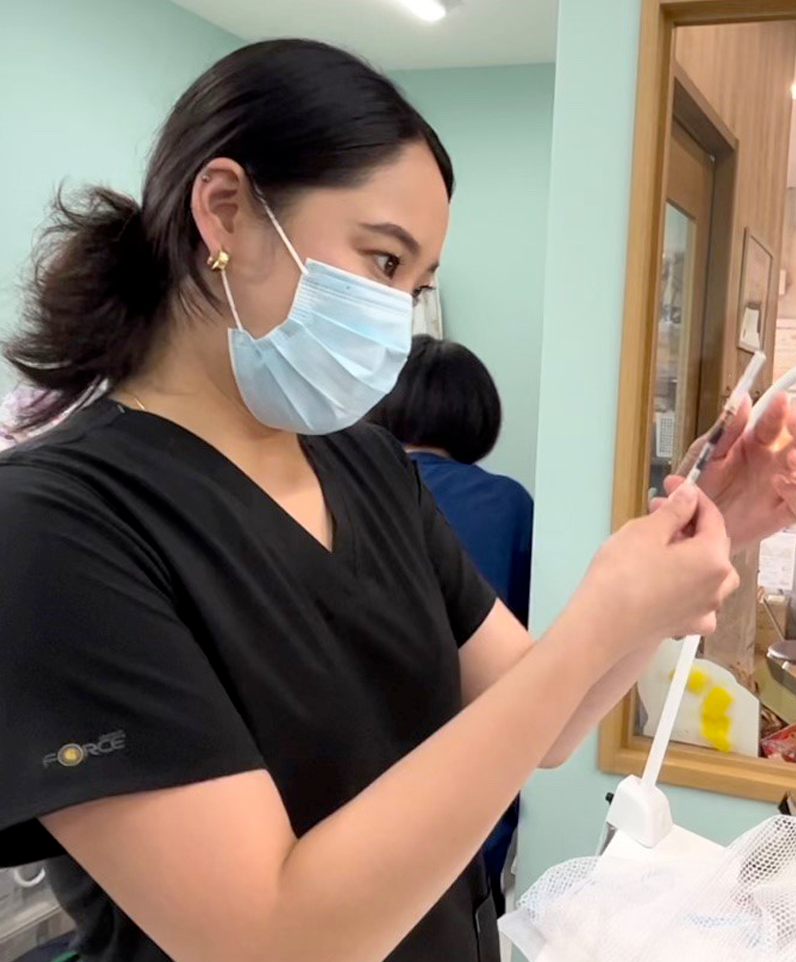
Juliann (Jay) Chou – Japan
Jay’s project this past summer involved conducting research and partnering with the Japan Cat Network (JCN) to volunteer at their locations in Tokyo and Kyoto, Japan. This involved transporting kittens through the bullet train, setting up the cat cafe for potential adopters, and assisting in routine cat care and vaccinations. Through JCN, Jay was connected to the Kawakuji Animal Rescue and the Happy Tabby Clinic where she participated in each part of the Trap-Neuter-Release (TNR) process. One of the main goals of Jay’s research was to garner the public’s perception of stray and domesticated felines as it pertained to transportation and access to veterinary care, as well as TNR efforts and stray population management. This was an experience of a lifetime to have the privilege of learning and traveling while being introduced to new cultures and lifestyles.
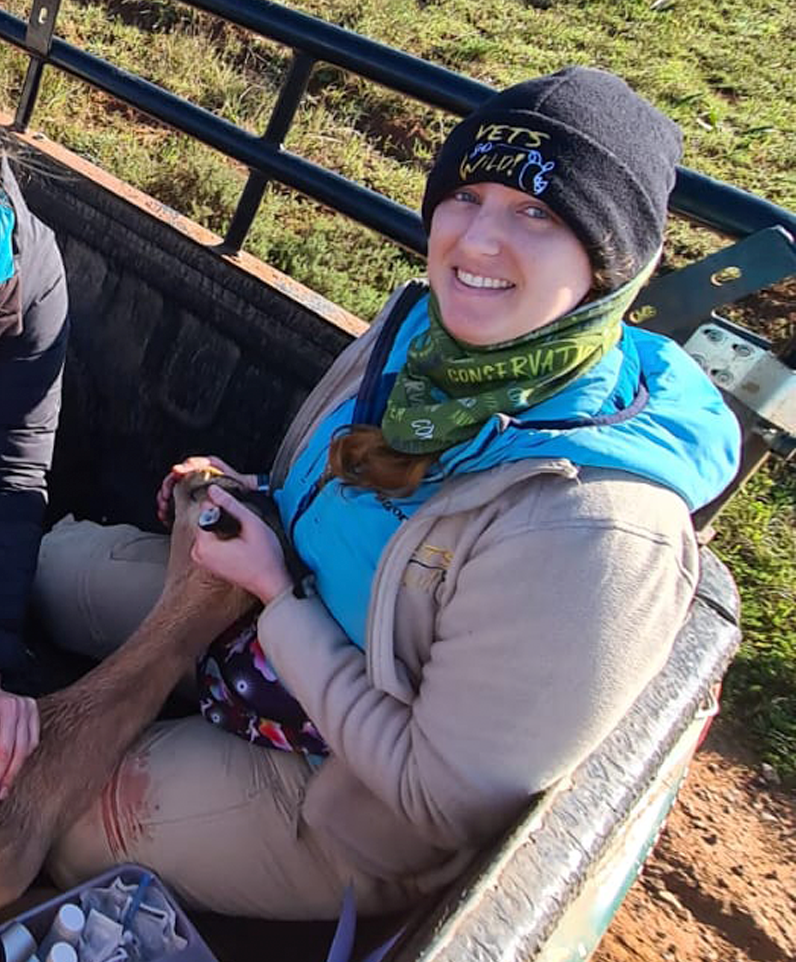
Shannon Cook – South Africa
Shannon got to experience a 16-day course about wildlife medicine in the Eastern Cape of South Africa. The course was comprised of lectures with 11 classmates and then the applied knowledge gained from those lectures out in the field where she assisted with immobilized wildlife for transport to other game reserves. This experience in South Africa allowed Shannon to work with animals she would never have had access to in the United States and learn about their species-specific immobilization protocols based on their unique anatomy and physiology. It also exposed her to a completely different culture, which helped her better understand the social issues people face in their daily lives and especially how that intersects with their natural resources.
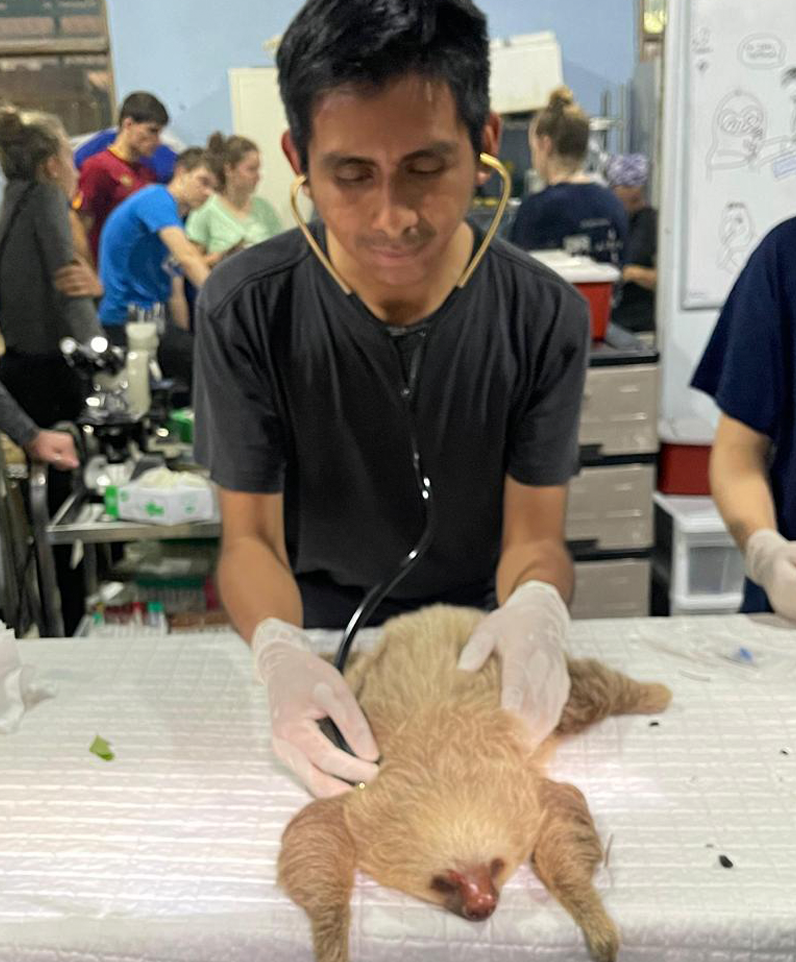
Sean Garcia – Costa Rica
Sean had the opportunity to spend four weeks in Costa Rica working at the NATUWA Wildlife Sanctuary, working with an array of amazing native Costa Rican species ranging from mammals (jaguars, sloths, tapirs, monkeys) to reptiles (iguanas, tortoises) to birds (macaws, parrots, cockatoos). In addition to medical treatments, he also learned about a range of husbandry and technical skills related to working with the various species. The best part of the experience was working with the rest of the veterinary team comprised of 15 pre-veterinary students, veterinary students, and veterinarians from all over the world, all of whom had various levels of knowledge and skills that were helpful to one another.
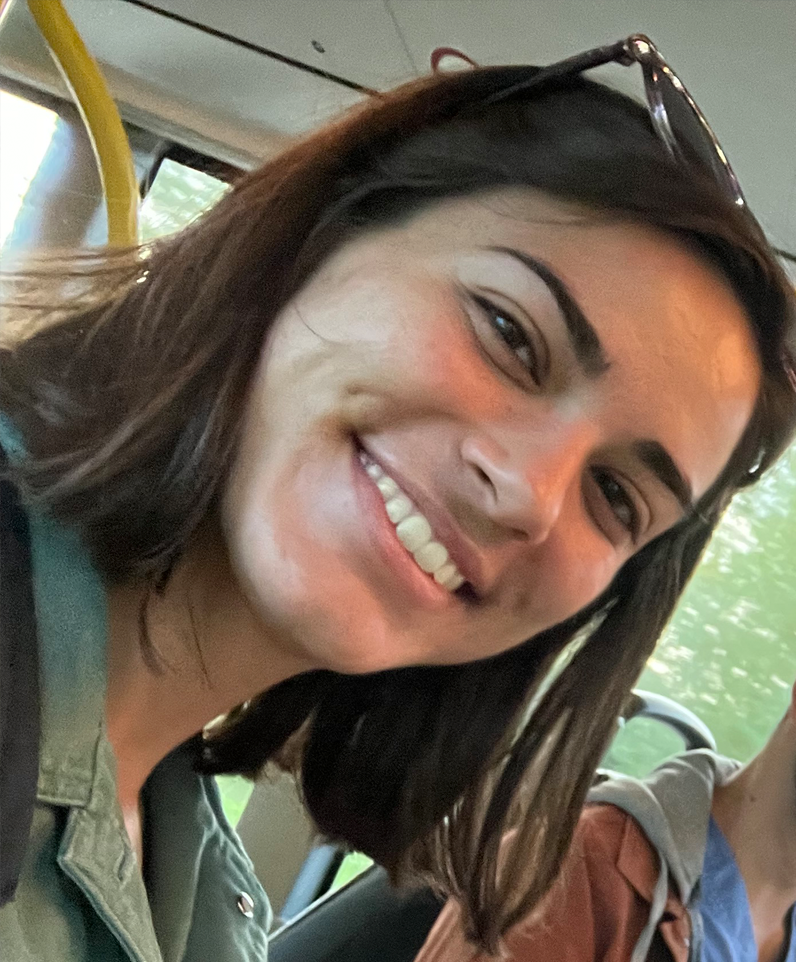
Maggee Gardea – Netherlands
Maggee started her externship by rotating through the intensive care unit, spending several days working alongside the technicians tending to the critical patients staying in the hospital. On other days during this rotation, Maggee took on her own patients and worked with the veterinarians to formulate a differential, diagnostic, and treatment plans. After ICU, Maggee rotated through the outpatient department, which included endocrinology and small animal reproduction. It was through this experience that Maggee developed a deep appreciation for the role veterinarians play in their community by witnessing how they impact the many people they interact with on a daily basis.
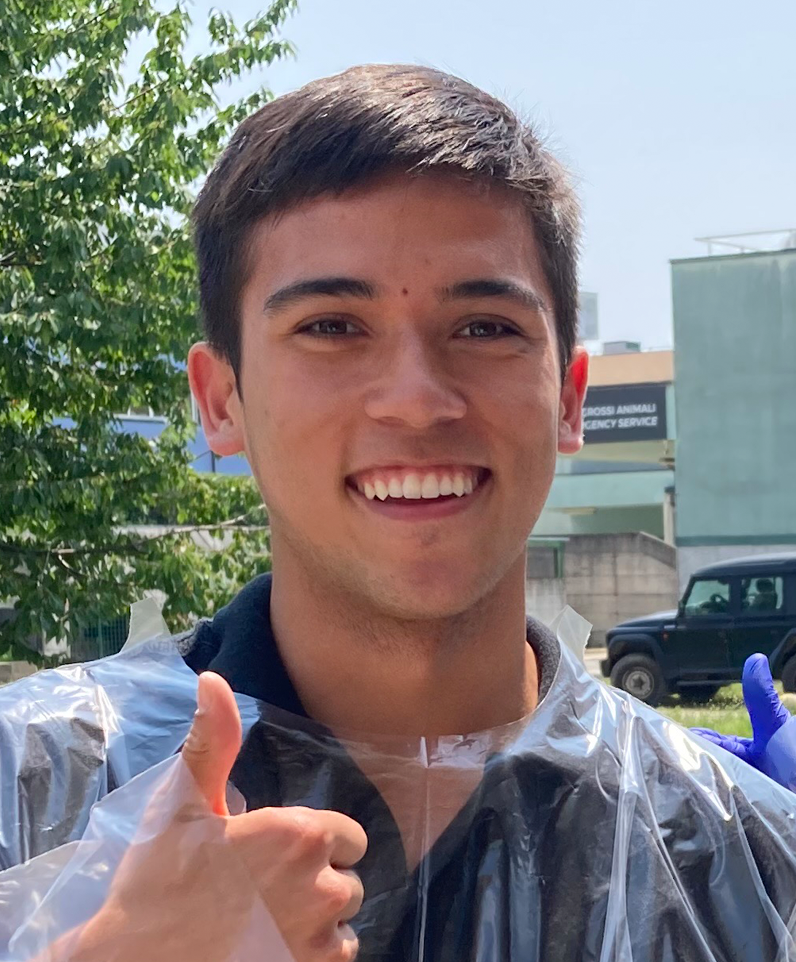
Xavier Gathy – Italy
Xavier’s three-week externship in Turin, Italy, was research focused and primarily centered around epidemiological research. The study connected wildlife population density and movement of roe deer and wild boar to the ticks and other vectors they carry, seeing how common diseases are then transmitted to humans and domestic pets, like cats, within the same area. The experience included: extensive experience in the parasitology department of the veterinary school completing lab work, a beautiful national park just a couple hours away for field work setting up camera traps and collecting tick samples, and the rich culture and delicious food of the city of Turin. In the lab at the University of Turin’s veterinary school, Xavier worked with Ph.D. students in the parasitology department on their research using camera traps that snap pictures when they detect movement. This time spent at the lab greatly reinforced the material he had just learned at UC Davis, having just completed the gastrointestinal block, with discussions about conducting fecal floats and relevant GI parasites.
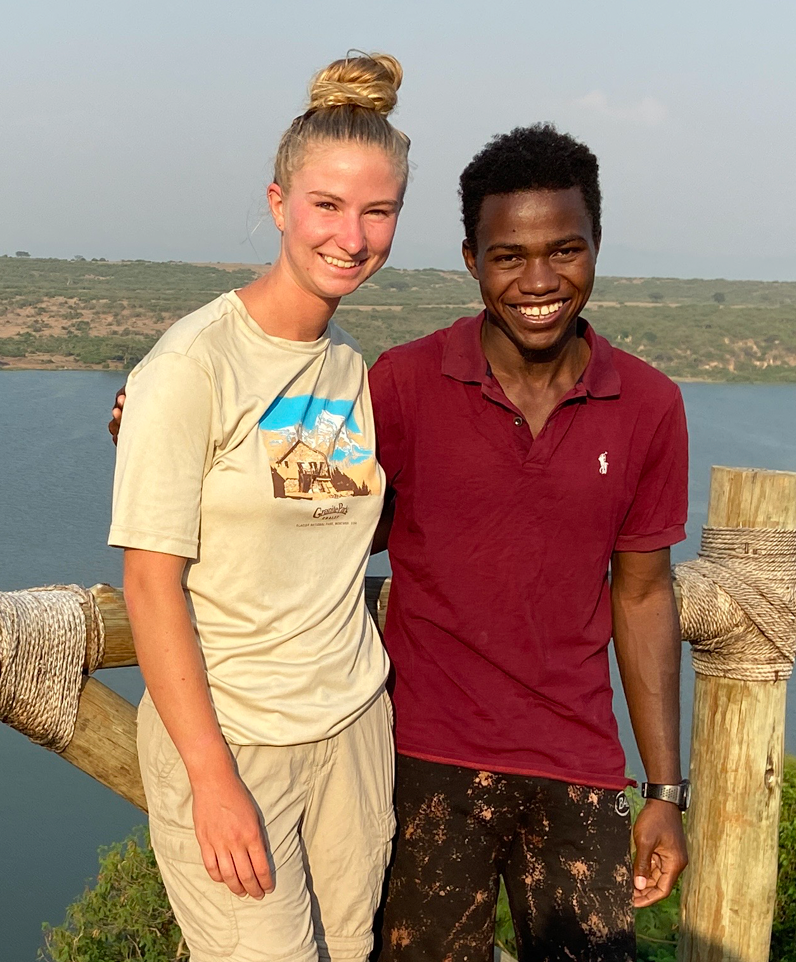
Jean Howell – Uganda
Jean spent five weeks in Uganda this past summer, working with wildlife veterinarians and experiencing the country’s natural beauty and culture in Queen Elizabeth National Park—located on the western edge of Uganda, which is home to numerous incredible wildlife species as well as 11 fishing villages. One of the biggest highlights was being able to participate in multiple wire snare removals and wound treatments of several elephants. Jean learned about elephant tracking, behavior, darting, immobilization, and the many nuances and complexities of wildlife conservation. This experience has informed Jean’s veterinary education and future career goals, as well as her growth as a person.
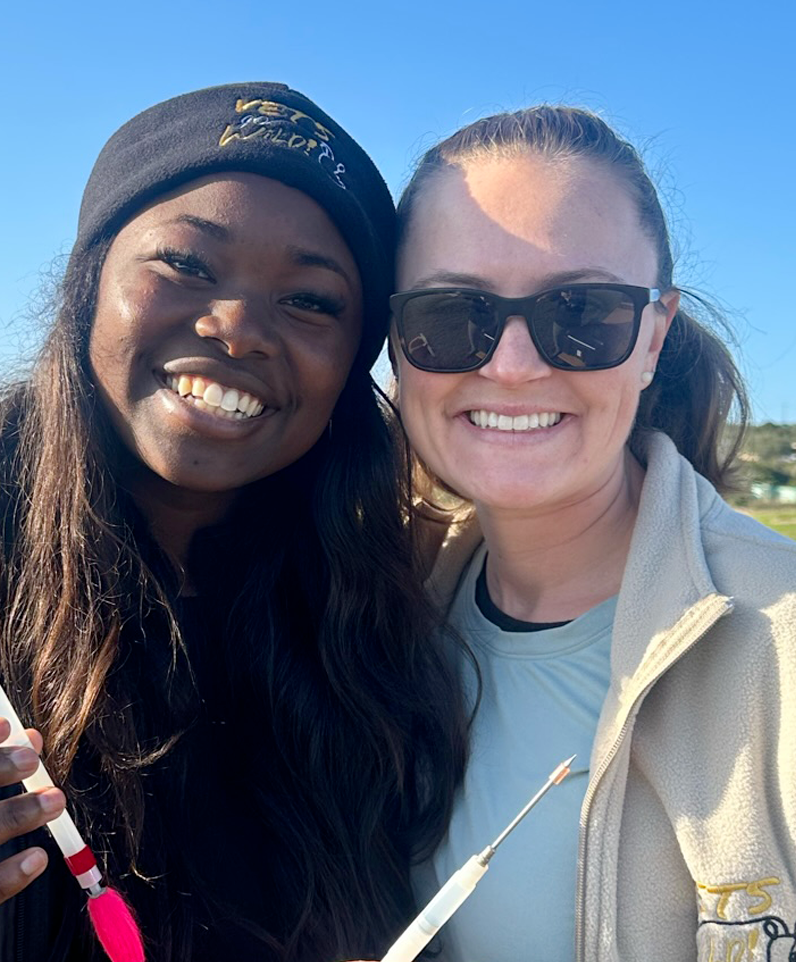
Taylor Lindquist – South Africa
Taylor spent this past summer in South Africa, on the Vets Go Wild Program which combines veterinary science, wildlife management, and conservation field training. The program included lectures on various topics like anesthesia, pharmacology, relationships between animals and habitat management, health and welfare issues associated with captive conditions, capture techniques, diseases relevant to African wildlife, and protected area systems & economics. Along with lectures and procedure days, Taylor and the other participants had the opportunity to visit a local children’s home and have a community day in a local township and give vaccines to small animals. She feels very privileged and thankful she was able to take this course and learn so much about conservation medicine and the people of South Africa.
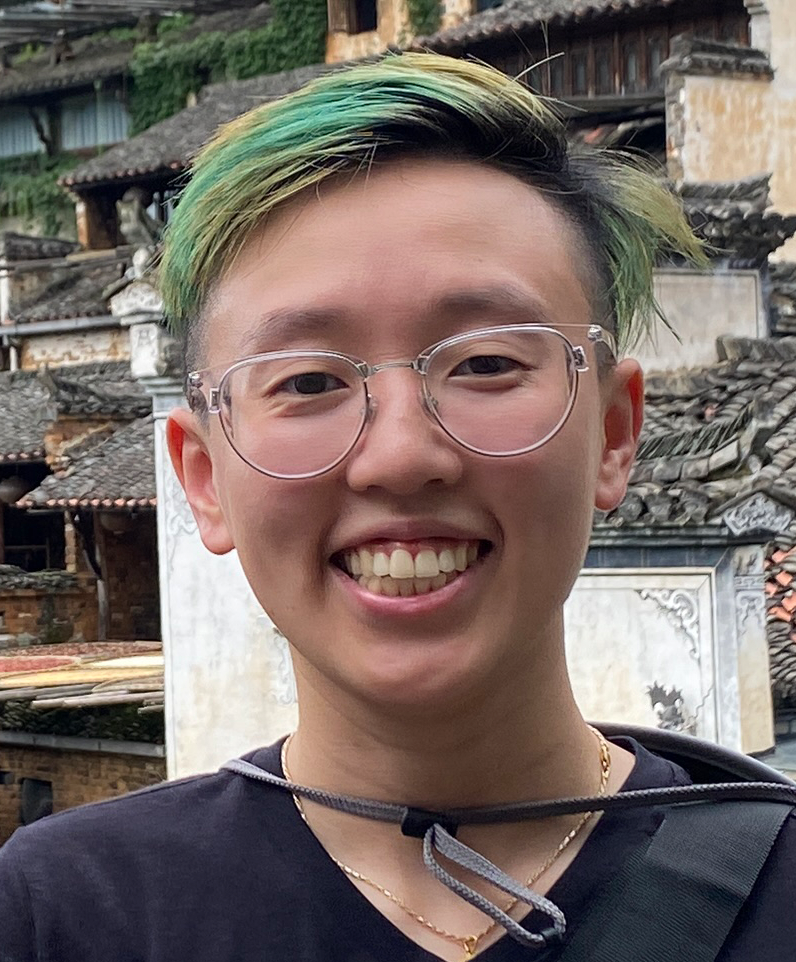
Vivian Liu – China
Vivian spent this past summer in China with three goals: to investigate public perceptions of stray cats and the current stray cat population management strategies, to reconnect with her Chinese culture and to improve her spoken Chinese. The first part of this trip started in Beijing, working with the International Center for Veterinary Service, where the first structured Trap-Neuter-Release (TNR) program was introduced. Next on the map was Pudong, Shanghai at Cat Island, a refuge established in 2020 which houses more than 300 stray cats from Shanghai due to abandonment and overfeeding of intact strays. The last spot of Vivian’s trip was to visit her hometown of Taishan, Guangdong. In these villages, the dogs and cats are considered neither strays nor pets, where dogs are meant to be guard dogs and the cats control pest populations.
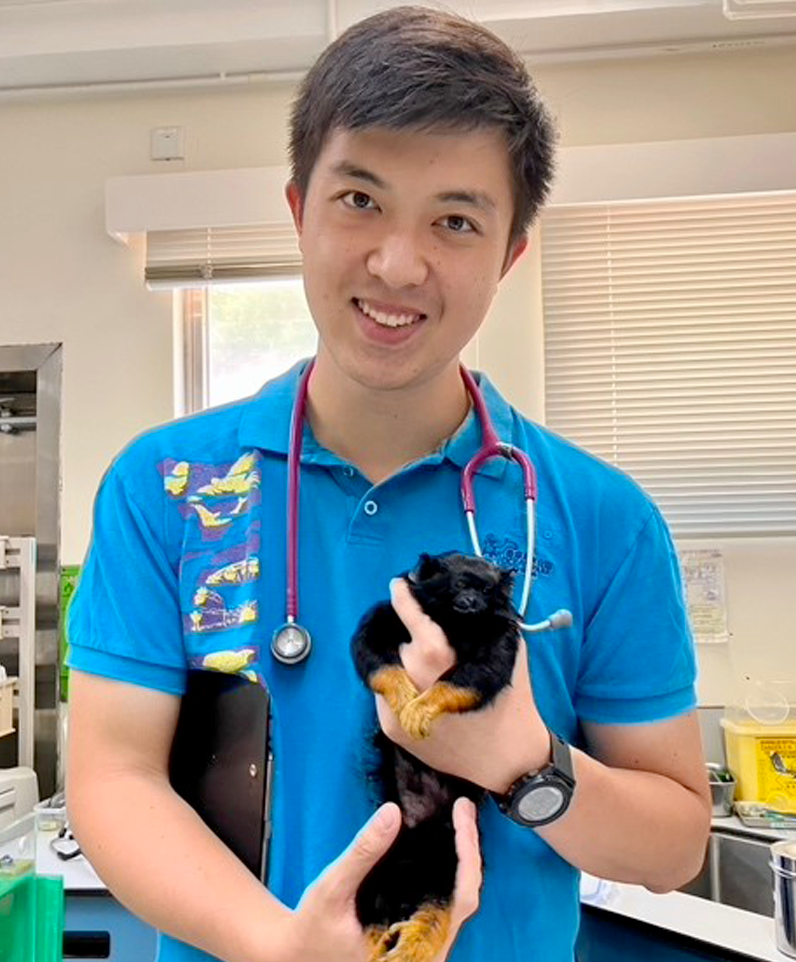
Nathan Ma – Hong Kong
Nathan had the opportunity to spend this past summer in Hong Kong, where he obtained an immersive experience in wildlife conservation and zoological medicine. His first four weeks were spent with the Kadoorie Farm and Botanic Garden (KFBG) veterinary team, a wildlife rescue and rehabilitation center in Hong Kong that provides care to injured native wildlife species and confiscated animals from illegal wildlife trades. He spent another four weeks with the veterinary team at Ocean Park Hong Kong. Ocean Park is a hybrid zoo and amusement park facility that houses various zoological species, including dolphins, sea lions, giant pandas, sloths, fish, and sharks. During his stay in Hong Kong, he also conducted a risk assessment and pathogen surveillance on endangered freshwater turtle species in collaboration with KFBG, Ocean Park, and two local universities. Through this opportunity, Nathan was able to experience wildlife conservation in both research and clinical settings. He learned a lot from this project, especially working with multiple collaborators internationally, from planning and executing the project to presenting the results.
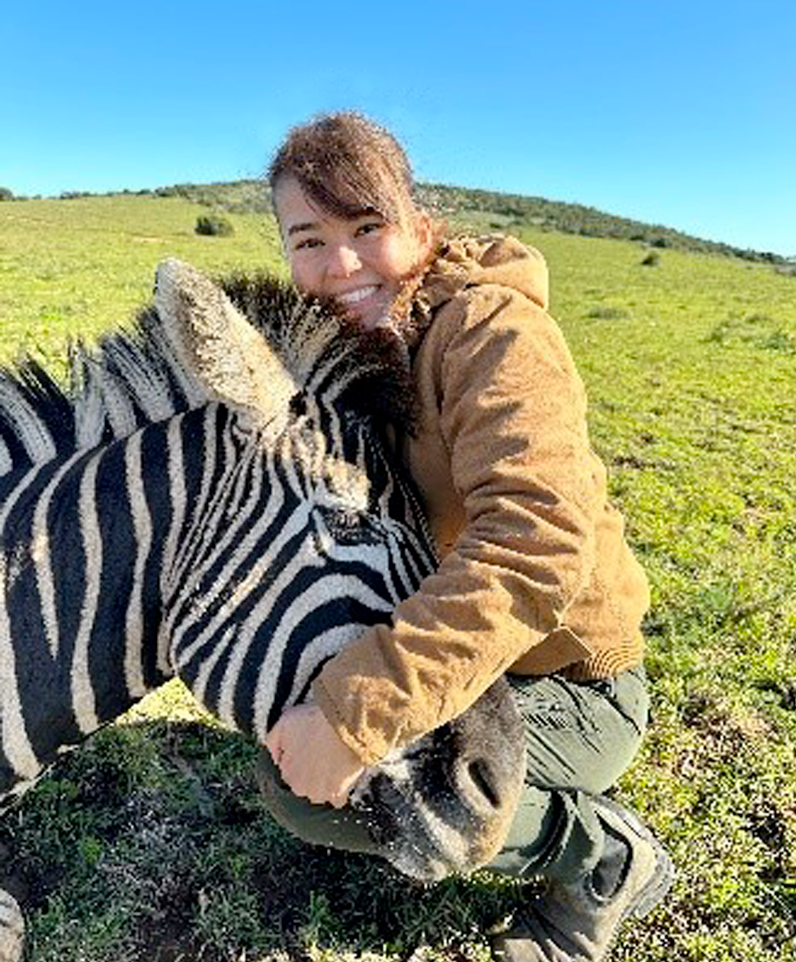
Tanya Marotta – South Africa
Tanya spent 16 days this past summer, on the Amakhala game reserve in the Eastern Cape of South Africa participating in the Vets Go Wild program. The program utilizes a combination of lectures, observation, and hands-on experience to provide students with an incredible opportunity to not only practice wildlife medicine, but explore the relationship between animals, people, and the planet that we share. Medical experience included physical exams, field anesthesia monitoring, IV blood draws/medications/catheter placements, dental extractions, rhinoceros dehorning and tracker placement, and more. By the end of the program, Tanya and the other students were formulating drug dosages for darting and capturing animals using their own plans. The experience left her with a renewed sense of self, resolve, and passion.
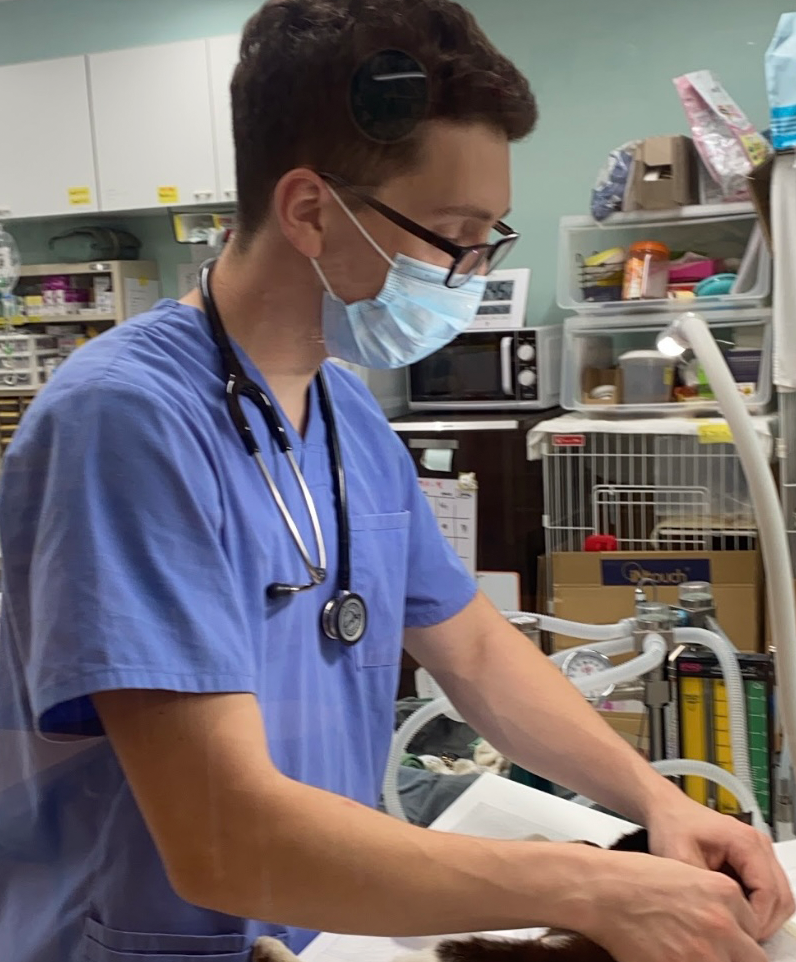
Luke Mase – Japan
Luke’s six weeks in Japan included an unforgettable medley of veterinary and cultural experiences that opened his eyes to the world across the Pacific. In Tokyo, he learned and assisted with the trapping operations of the Kawakuji Animal Rescue. This team of volunteers, comprised of international and domestic residents, taught him not only how to trap feral cats but to do so in a way that was most cohesive with Japanese society and concerned cat caregivers. Next, he traveled to Kyoto where he helped provide the husbandry and care of the Japan Cat Network’s (JCN’s) TNR cats. While volunteering and living on the JCN’s premises, he worked alongside international volunteers from all six continents. The trip sparked a stronger interest in Luke to learn more about sociology, anthropology, culture, and TNR.
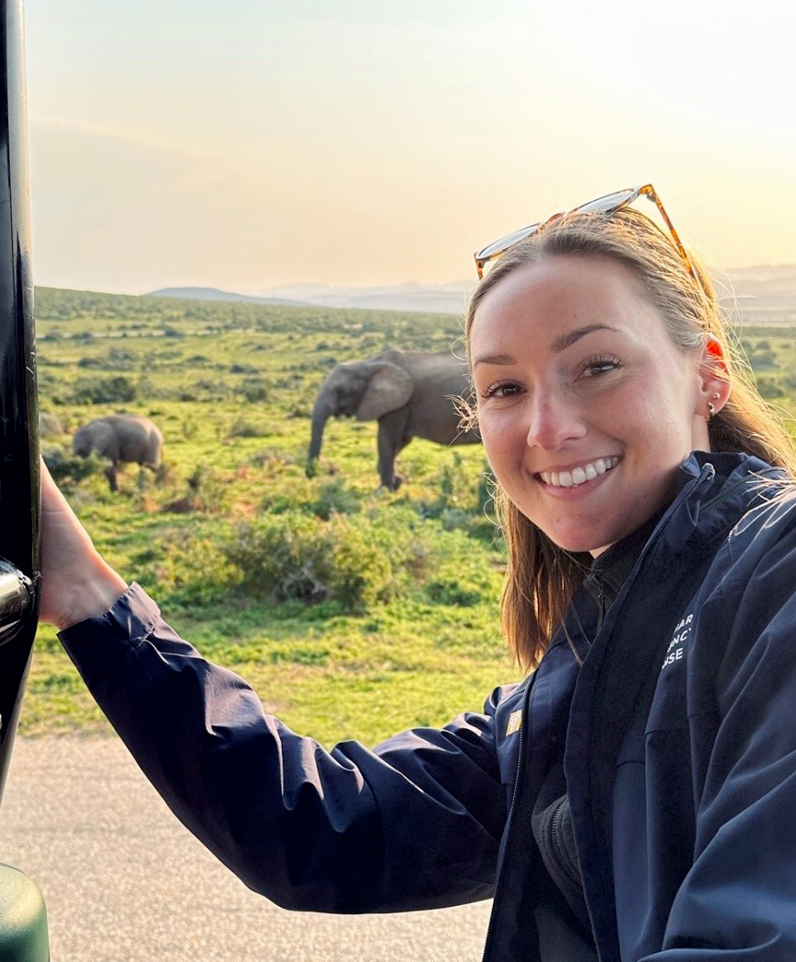
Chelsea Morrow – South Africa
Chelsea spent two weeks this past summer, with a handful of veterinary students from the US and UK on a wildlife immobilization course in South Africa, “Vets Go Wild.” She got to learn the ins and outs of immobilization, transport, and management of South Africa’s big game species under the umbrella of One Health and the current political and social climate and developed a more acute sense of anesthetic depth and safety around dangerous animals. She was also able to revisit a lot of pharmacology and how it relates clinically to the success of an immobilization. This experience provided Chelsea the opportunity to learn an incredible amount about wildlife, people, politics, medicine, and herself.
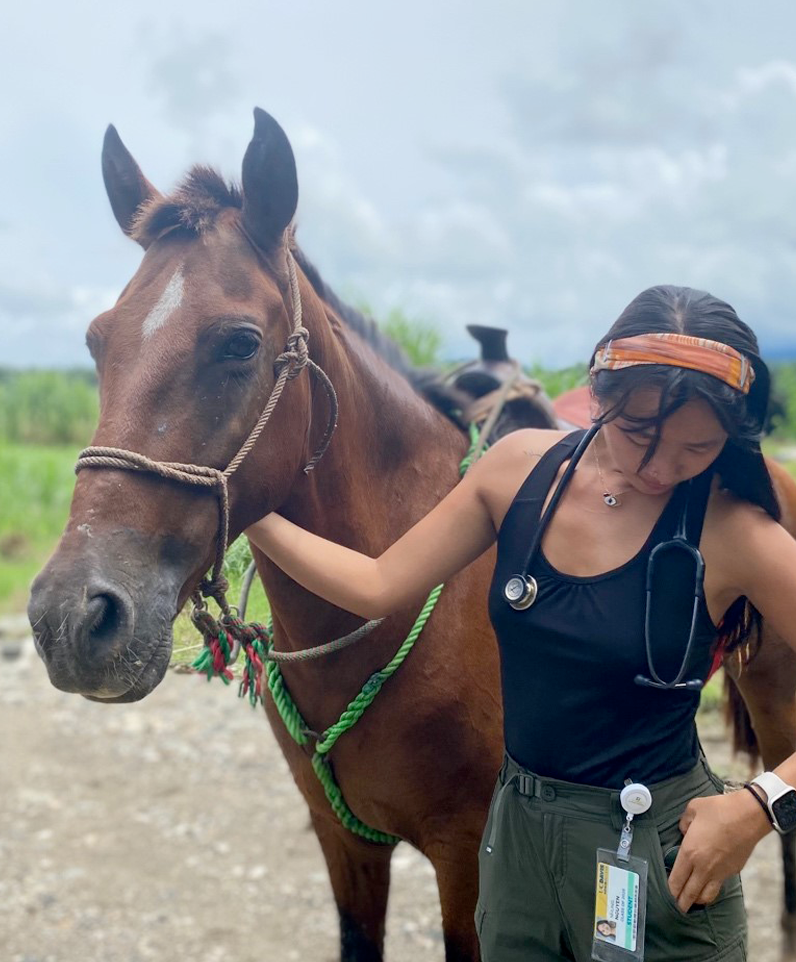
Nhung Nguyen – Costa Rica
Nhung had an opportunity this summer to travel to Costa Rica to identify a target population of mules, horses, and oxen that required health and welfare attention. These working equids are used to haul cartloads of fruit yet lack standardized protocols to ensure proper working conditions are met. Nhung’s project involved traveling to a prominent palm oil plantation with an initiative to address gaps by evaluating current management practices, performing health wellness exams, developing a welfare assessment tool, and making recommendations for improved equid welfare. The observations from this project uncovered the immense complexity of the issue, intertwining fundamental roots of human, animal, and environmental concerns. Through this project, Nhung learned to understand how to be mindful of her presence as a visitor, and to communicate her intentions to work alongside and empower the local community, as that is where true change is sustainable.
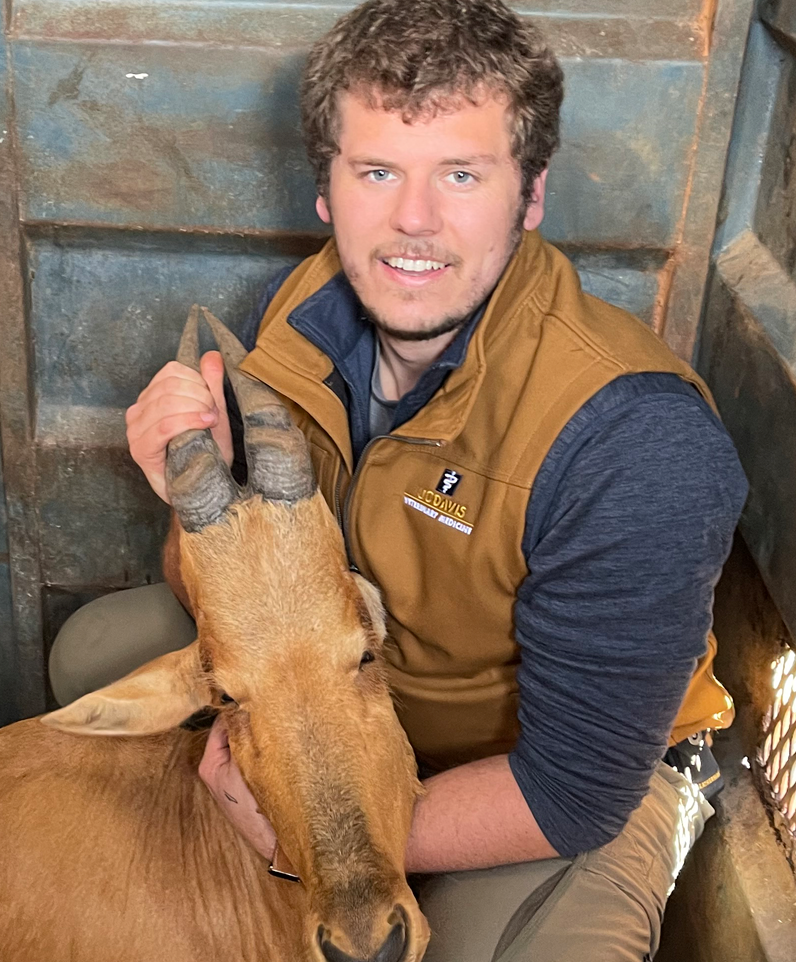
Calvin Price – South Africa
Calvin spent an intensive eight weeks this summer, collecting data and performing research on a project centring around the Addo to Fish Biodiversity Corridor (ABC) in the Eastern Cape of South Africa. The project was initially driven by conservation goals, though recently, it has shifted its focus to a One Health approach, necessitating essential disease surveillance to monitor the well-being of wildlife in the region. More than 200 free-ranging rhino samples were collected with the development of a real-time PCR test and microscopic identification to detect and quantify the parasitaemia of Babesia bicornis & Theileria bicornis.
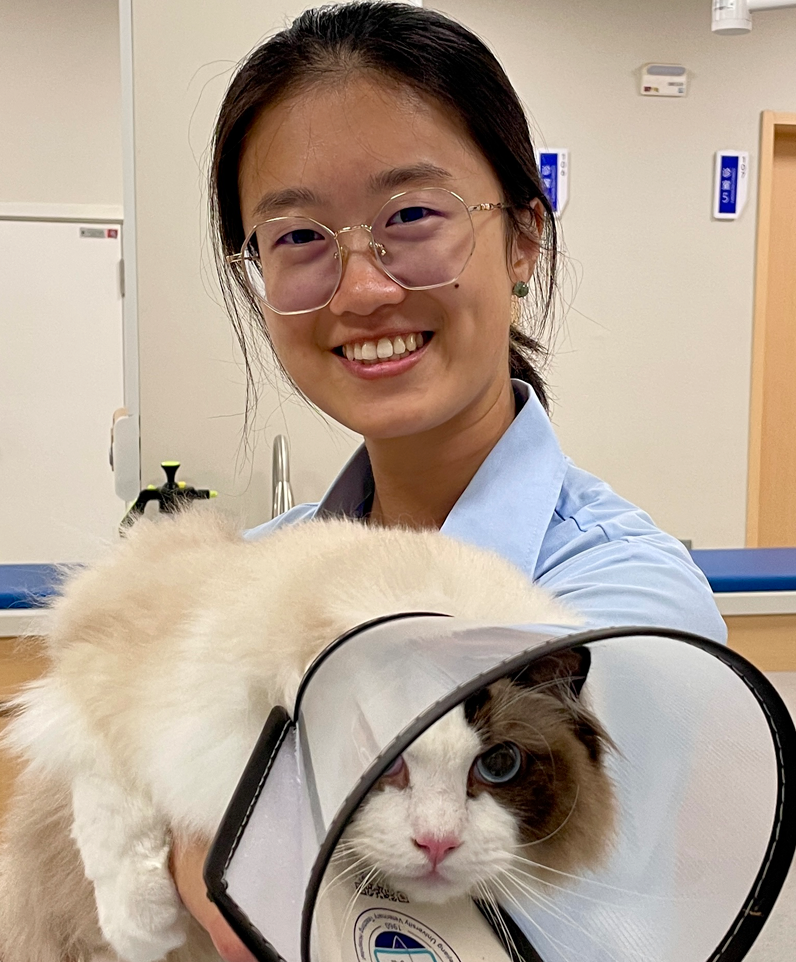
Linda Ren – China
Linda spent four weeks working alongside experienced clinicians at Zhejiang University Veterinary Teaching Hospital in Hangzhou, immersing herself in the Chinese culture, and contributing to the care of a diverse range of animals. She had the incredible opportunity to shadow and assist in Traditional Chinese Veterinary Medicine (TCVM) techniques during her time at ZJU, with acupuncture being the most used TCVM treatment modality, primarily utilized for patients suffering from neurological diseases. This externship highlighted the importance of international collaboration in advancing the field of veterinary medicine and reinforced Linda’s belief in the universality of our commitment to animal care and welfare.
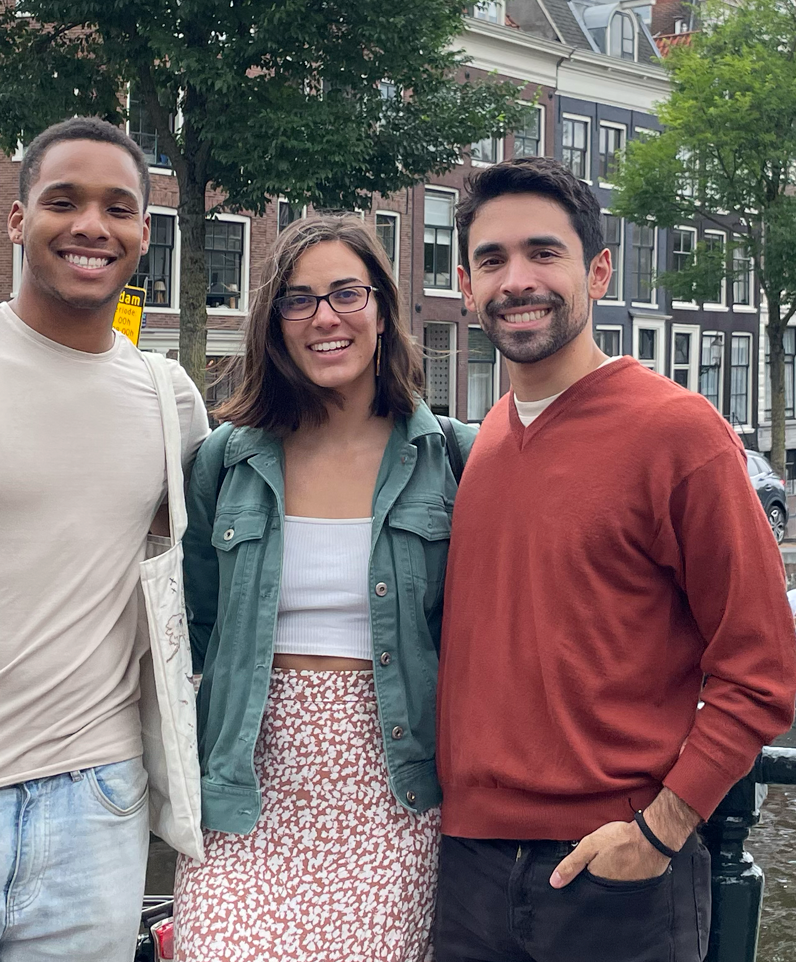
Daniel Ribal – Netherlands
Daniel spent two weeks completing an externship at Utrecht University in the Netherlands. He spent the first week in their dermatology and small animal reproductive medicine departments where he was introduced to the world of responsible dog breeding. In their avian and exotics department, he had the opportunity to learn more about disease processes in our feathered and scaly companions. Utrecht University is unique considering it is the only veterinary school in the Netherlands. Access to care can be difficult for people across the country who must travel by car or train with their pets to receive specialized veterinary care. Externing at an academic institution similar to UC Davis allowed Daniel to not only learn from world class faculty but share ideas with other veterinary students in a comradery that transcends borders.
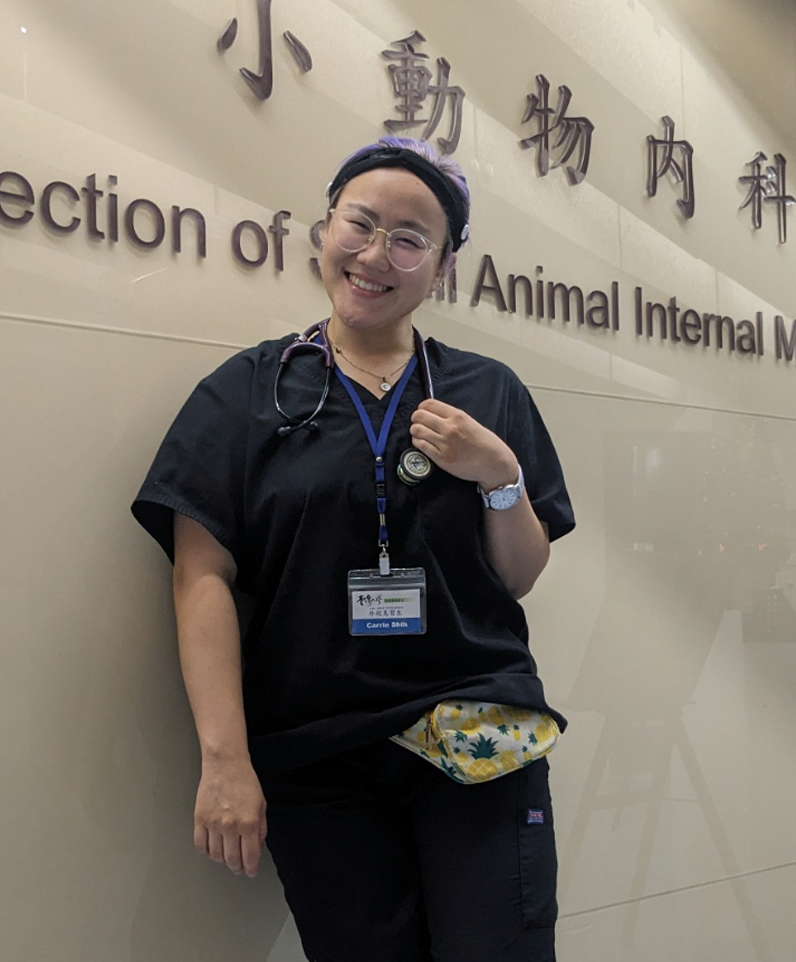
Carrie Shih – Taiwan
Carrie spent four weeks externing through the National Taiwan University’s veterinary teaching hospital, rotating through four different specialty departments every week: Integrative Medicine and Rehabilitation, Anatomic Pathology, Internal Medicine, and Surgery. As a second generation Taiwanese-American, Carrie was able to improve her medical Mandarin, learn how the veterinary school experience differed from the United States, and gain insight on how the Taiwanese public views veterinary medicine and animal care. This trip was both meaningful and enlightening as Carrie was able to merge two quintessential parts of her identity together.
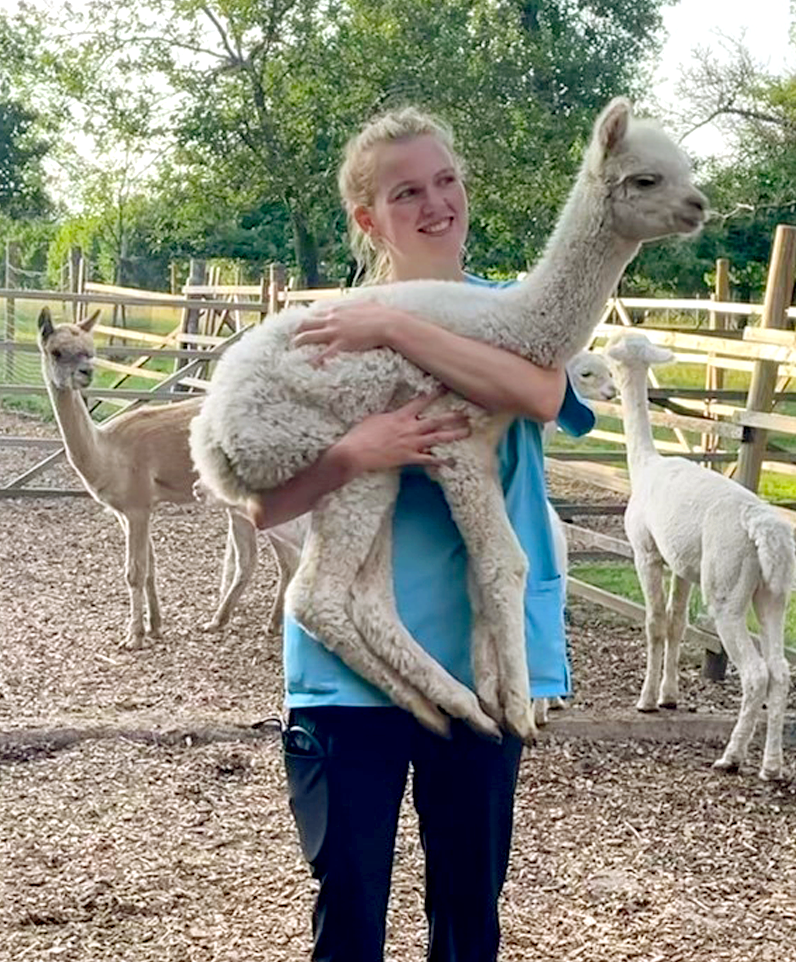
Anne Werum - Germany
Anne completed a six-week mixed-animal clinical externship in Germany at the Pferdeklinik und Kleintierpraxis in Maichingen, a small animal general practice and equine clinic with an emergency service. She was able to participate in extensive lameness exams, take thermography and radiograph images, as well as perform ultrasounds. Anne had the opportunity to learn about equine medicine and how it fits into a mixed animal practice and thoroughly enjoyed her time spent in Germany.
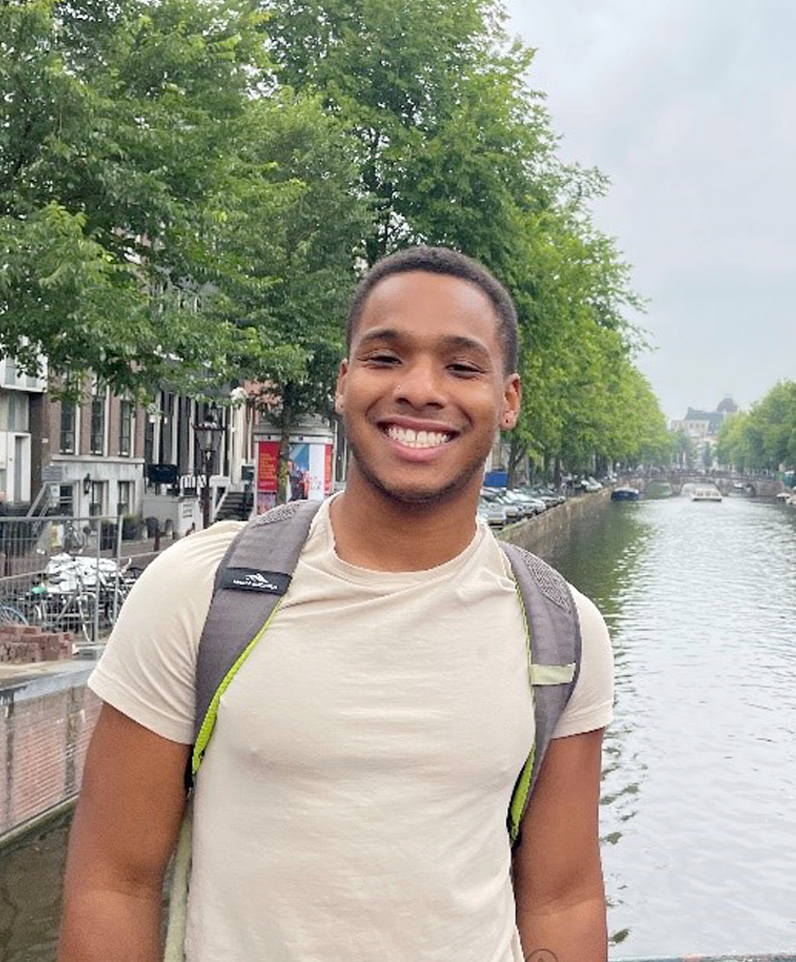
Bryce Westbrook – Netherlands
Bryce did a two-week externship at Utrecht University with a rotation through their Avian & Exotics service as well as their Internal Medicine service unit. His first week was spent working alongside fellow students from Utrecht University, eagerly diving into the intricate world of parrots, rabbits, guinea pigs, and hedgehogs. He took a deep dive during his second week in Internal Medicine, which was divided in subspecialties. Beyond the clinical experiences, Bryce’s externship was a journey of cultural enlightenment and the impact of this journey on his life and career cannot be overstated.
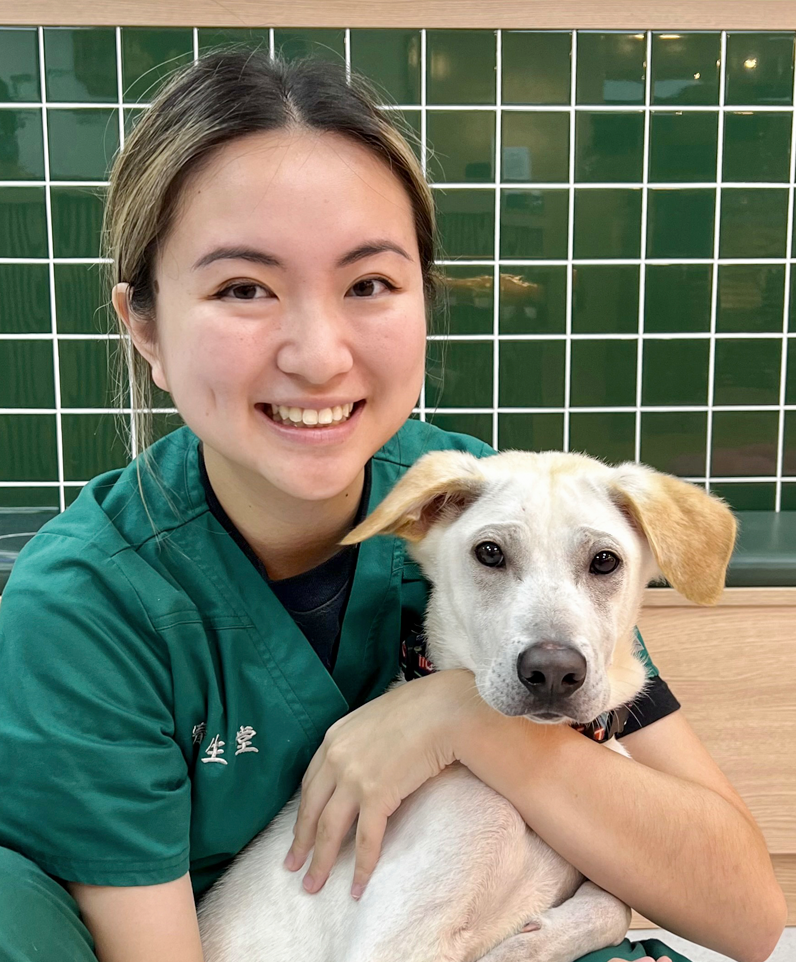
Coco Yeung – Hong Kong
This past summer, Coco pursued her dream of clinical experience in traditional Chinese veterinary medicine (TCVM) and working with exotic species in Hong Kong. She spent four weeks at a TCVM clinic as part of the Pet Space Group which provides both Western and Chinese medicine treatments such as acupuncture, electroacupuncture, herbal medicine, and tui-na. Given her interest in working with exotic animals and wildlife, she spent another one and a half weeks at Ocean Park, one of only a few Association of Zoos and Aquariums accredited facilities outside of the U.S. Through this experience, Coco hopes to combine her interests and be able to work with both small animals and exotic species through the lens of integrative medicine and conservation.
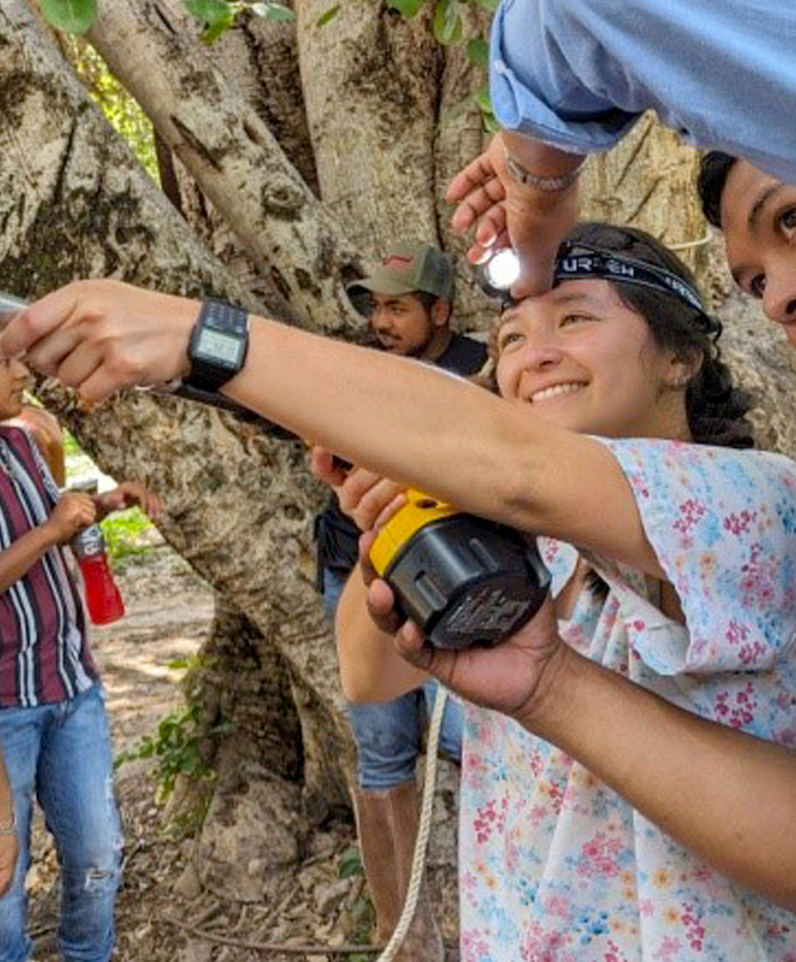
April Yoshihara – Mexico
April spent this past summer in Mexico at the Rural Veterinary Experience Teaching and Service (RVETS), which has been providing veterinary education and care in rural communities for more than a decade. During her time at RVETS, April assisted in providing free services for horses, donkeys, and mules to communities throughout Sierra Gorda. Not only did she choose this experience to be able to learn more about equids, but she was also excited to go to Mexico for the first time, using this opportunity to learn more about her culture..
- 2022
-
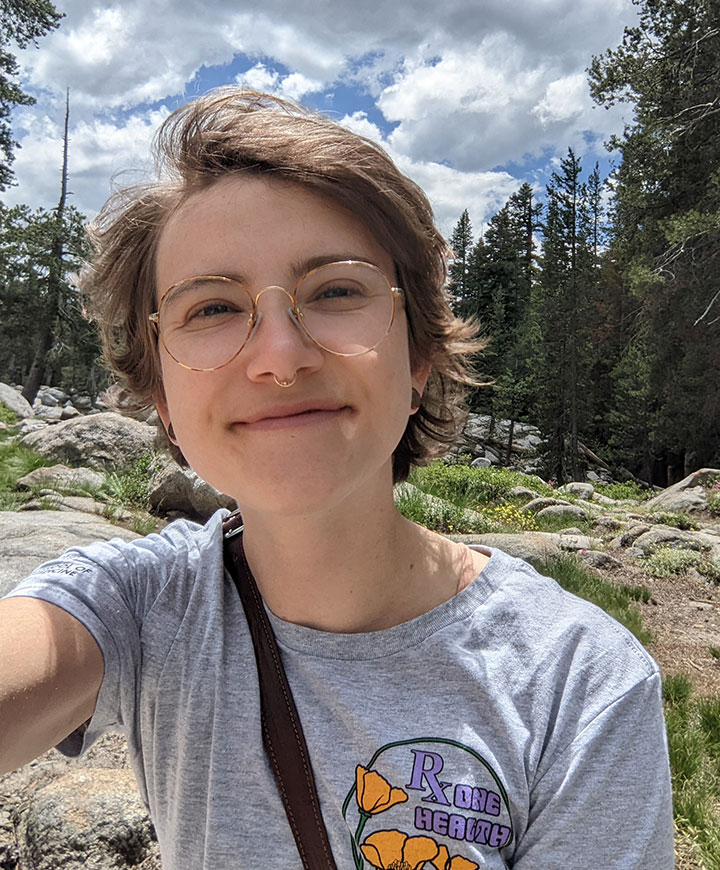
Savanna Blair – California
Savanna participated in the RX One Health Field Institute at several sites throughout California. She learned more about the One Health Approach as she explored areas of study and potential topics for research for her MPVM degree. Savanna came away from the experience with new friends from around the world, and excited, motivated, and curious to learn more about the interconnectedness of our planet's health.
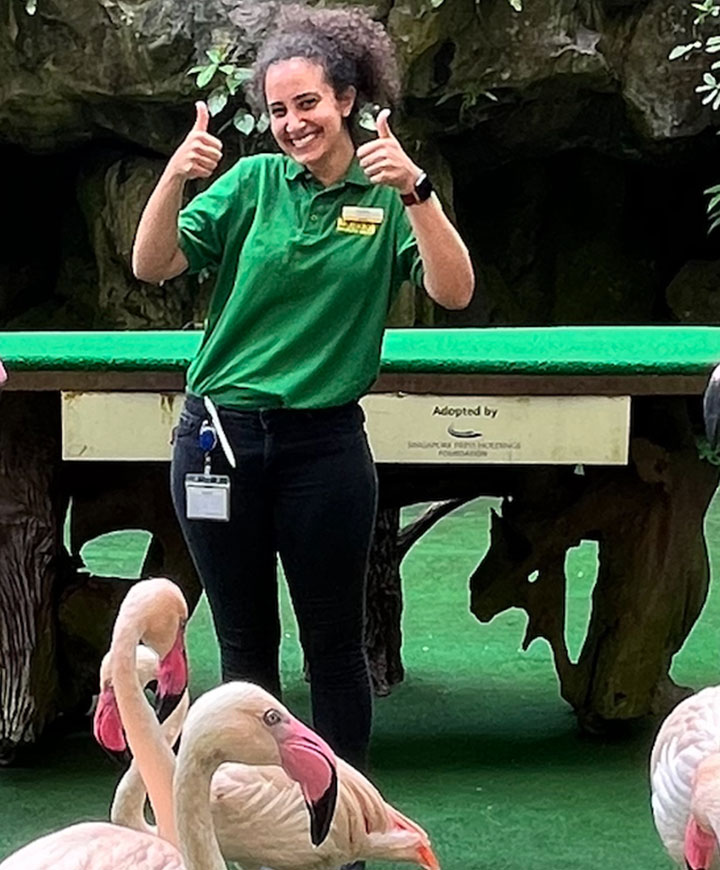
Hannah Dadah – Southeast Asia
Hannah’s summer externship was based in Singapore with the Mandai Wildlife Group, an organization that manages four of the nation’s zoological parks. She got to help with breeding program efforts for critically endangered species, like the Philippine eagle, and also advanced specialty avian medicine, like cataract surgery for king penguins. She particularly enjoyed being able to work with an international team of vets from not only Singapore, but also Malaysia, Australia, France, Japan, and Taiwan.
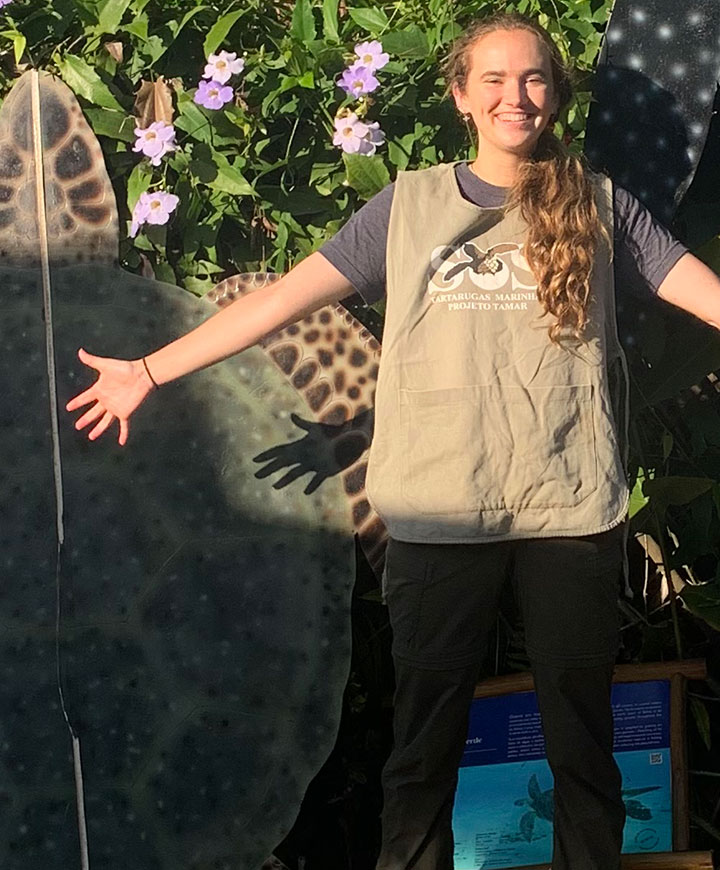
Alexis Durant – Brazil
Alexis traveled to Brazil to conduct research on Fibropapillomatosis (FP), a disease-causing tumor development in all species of sea turtles around the globe. She also had the opportunity to visit two wildlife rehabilitation centers to collect data for the research project and to gain valuable clinical experience with a wide variety of species. The experience made her even more excited about pursuing a career in wildlife medicine and research.
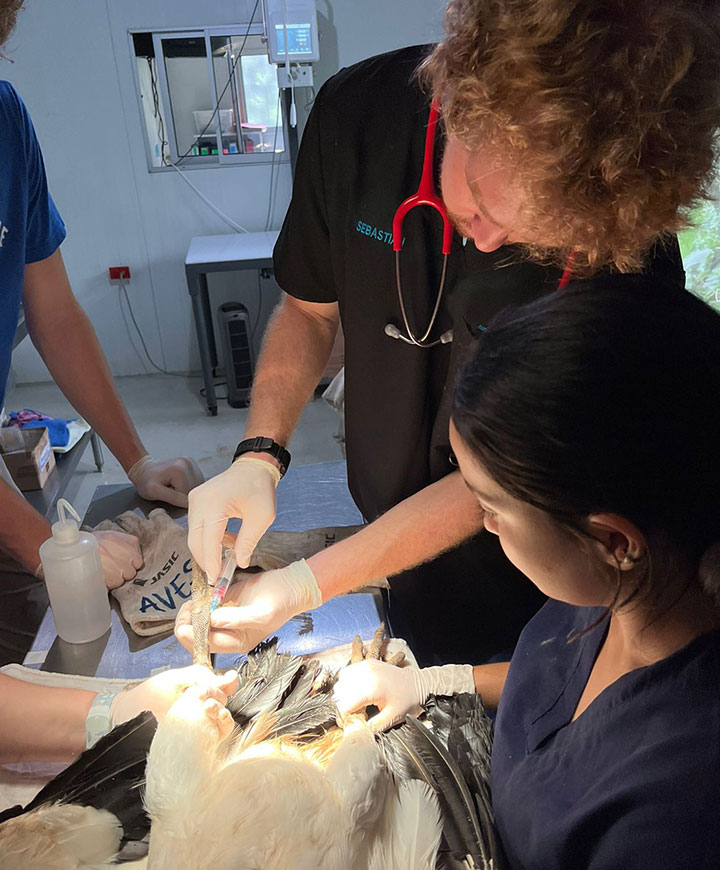
Sebastian Elsenbroek – Costa Rica
Sebastian’s externship took place at Rescate Wildlife Rescue Center in Alajuela, on 35 acres of forest with more than 125 animal species. He worked with staff veterinarians to learn proper restraint and handling, how to do physical exams, take blood, and give treatments. Sebastian was able to work with a wide variety of animals, including lots of different birds, monkeys, and turtles. The experience increased his cultural awareness and a deeper appreciation for life’s simple beauties.
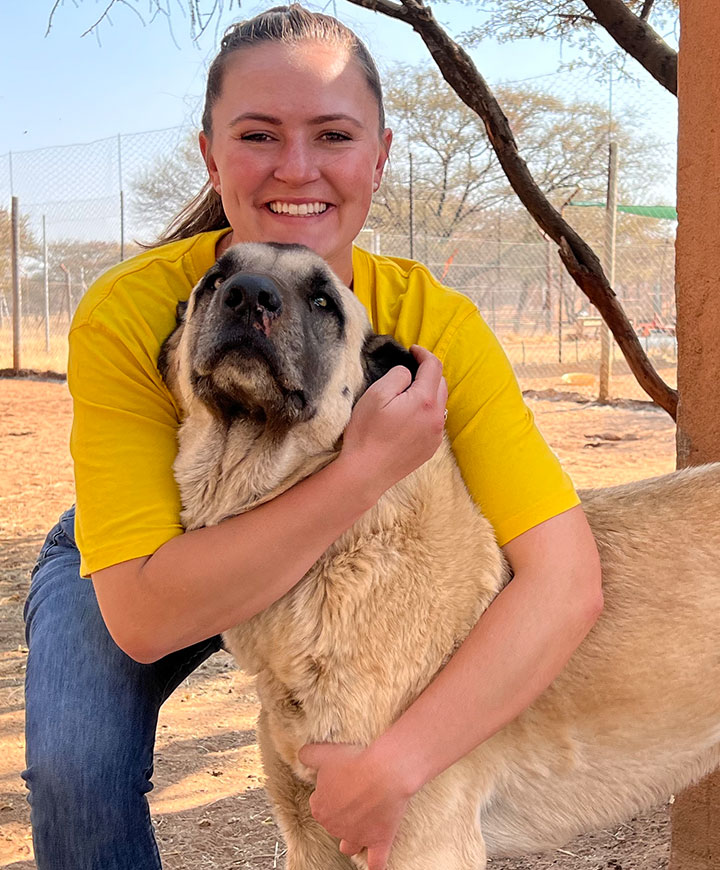
Taylor Lindquist – Namibia
Taylor had dreamed of interning with the Cheetah Conservation Fund (CCF) for eight years, since her undergraduate years at Cal Poly. While at CCF, she saw many interesting cases, including mastitis, tick bite necrosis, an enucleation, gastric dilatation volvulus, wounds from leopard attacks, abscesses, hernia repairs, a mastectomy, and more. These cases included dogs, goats, sheep, cattle, horses, and cheetahs. Taylor says the experience was the experience of a lifetime.
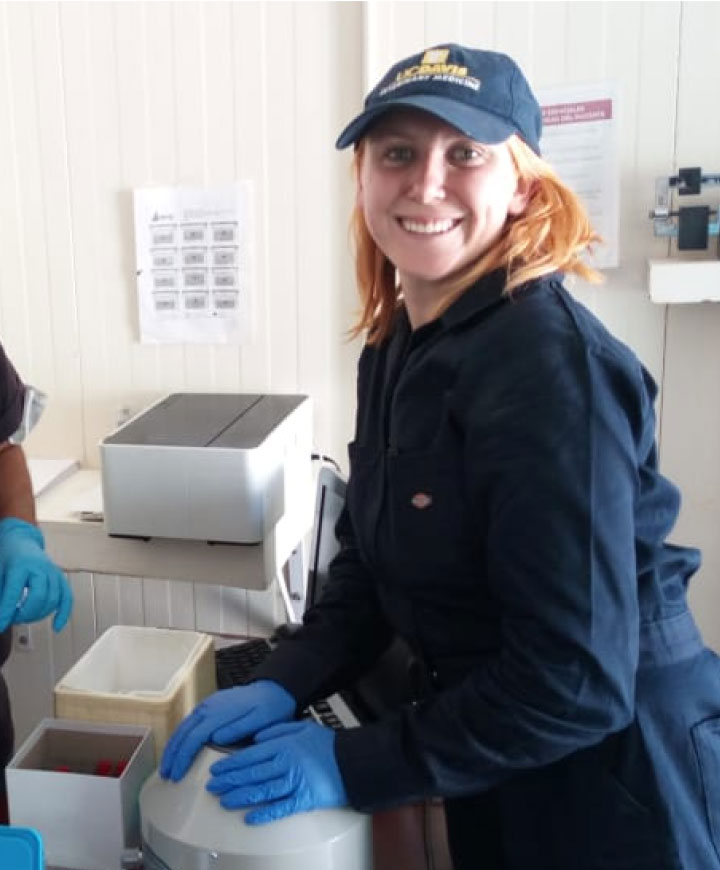
Alex Montegna – Mexico
Alex was awarded the Global Feline and Underserved Community Fellowship from Global Programs to investigate the distribution and prevalence of Chagas disease in Hidalgo, Mexico. As a veterinarian, he aims to investigate zoonotic diseases within rural communities and incorporate elements of public health and biosecurity into the practice of small animal and avian medicine. Along with his collaborators in the country, Alex helped develop a surveillance project to better understand the prevalence of this zoonotic disease.
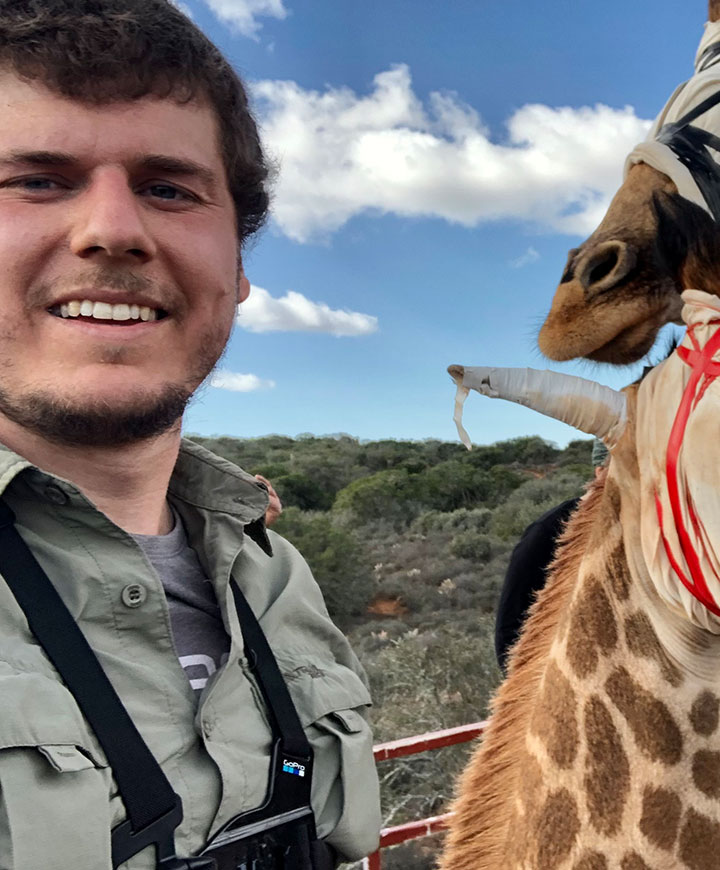
Calvin Price – South Africa (virtually)
Calvin conducted a remote research project to determine the prevalence of two blood-borne parasites, Babesia and Theileria, within black and white Rhinos in a South African metapopulation. This project stemmed from a previous global programs clinical experience where I sought to validate a CBC machine to use in white rhinos in South Africa. Calvin credits the experience with helping him gain new contacts, insights, and knowledge on both the subject in focus and the profession of wildlife veterinary medicine.
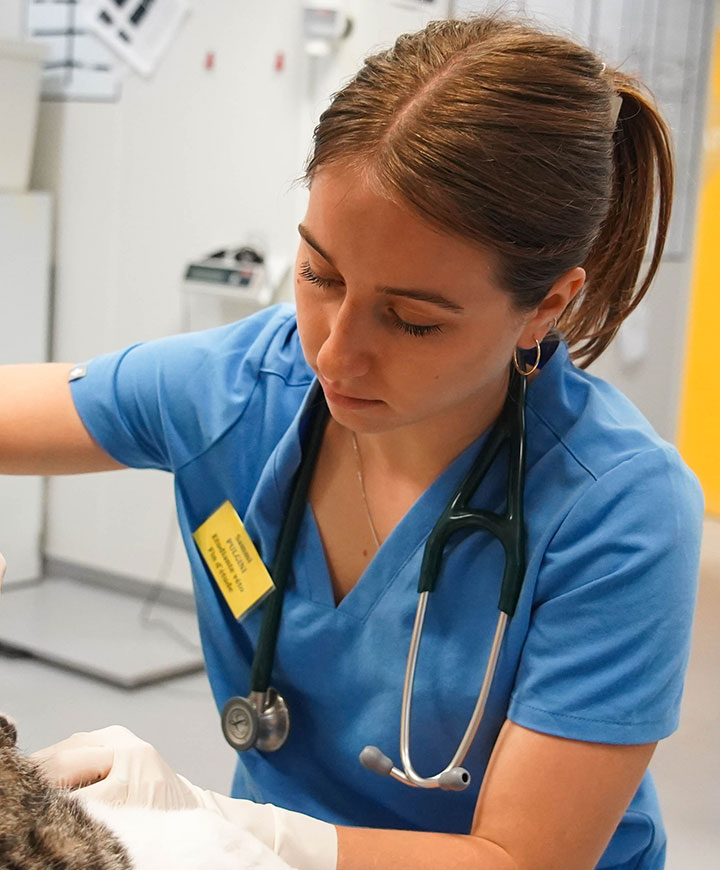
Samantha Pulgini – France
Samantha completed a 2-week externship at the Clinique Vétérinaire des Ducs de Bourgogne—one of the region’s largest small animal and exotic referral hospitals. She served as part of the clinic team and had the opportunity to work alongside individuals from all services in the hospital, practicing clinical skills and broadening her understanding of diagnostic test strengths and limitations. Every day brought a new and exciting learning opportunity.
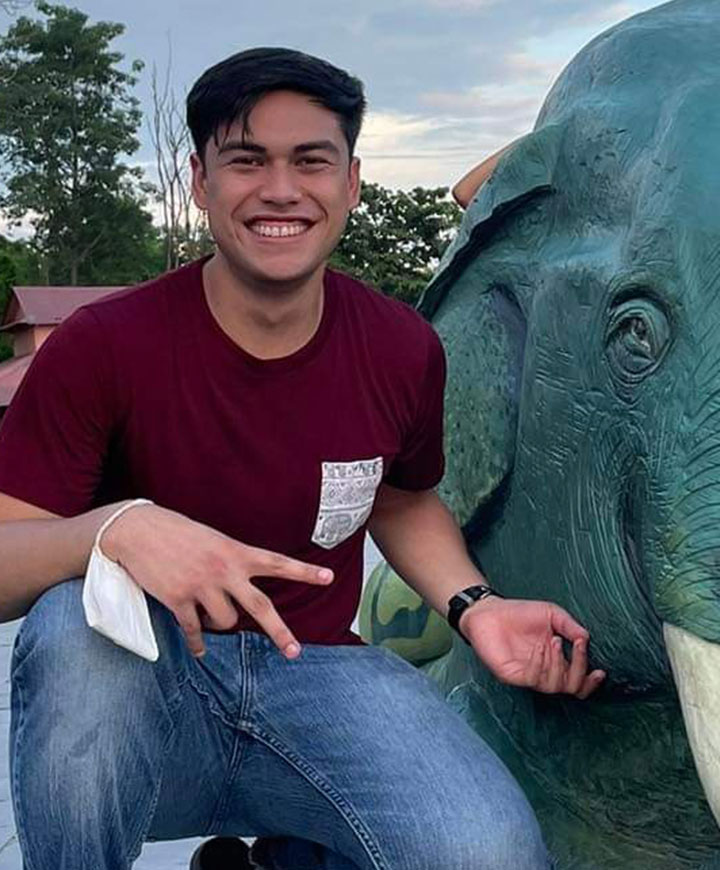
Tanner Talan – Nepal
Tanner traveled to Nepal to lead a surveillance project for elephant herpesvirus and to meet the wildlife veterinarian at Chitwan National Park to discuss their role in wildlife health and conservation. His experiences spanned from walking through the streets of the Kathmandu valley visiting vast temples, to trekking through the jungle to perform treatments on elephants, and navigating the diagnostic laboratory to perform disease surveillance.
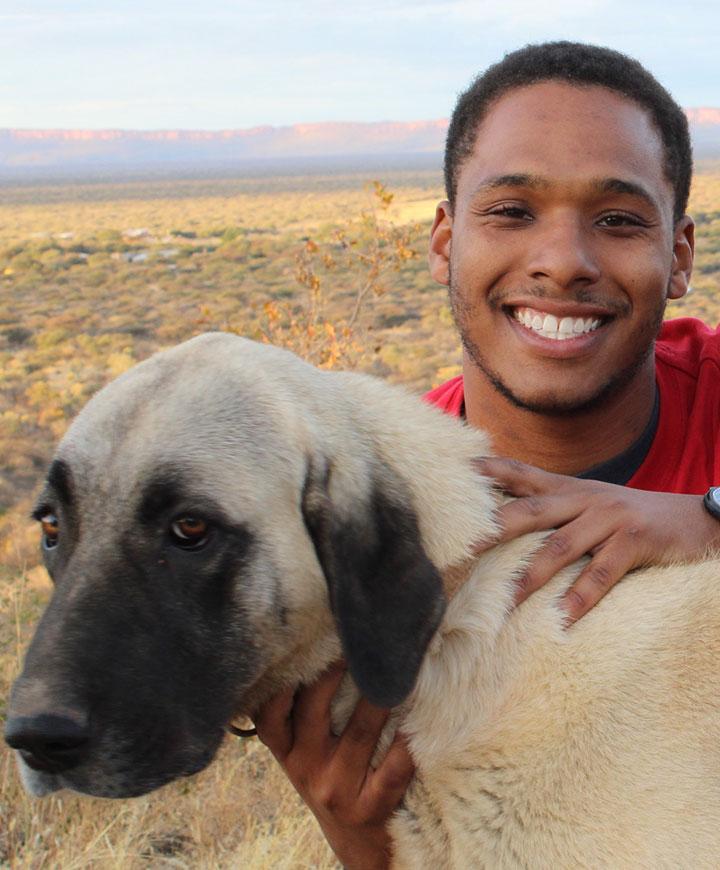
Bryce Westbrook – Namibia
Bryce traveled to Namibia to intern with the Cheetah Conservation Fund (CCF). He had the chance to work with a variety of species like goats (Boer and dairy), Damara sheep, Anatolian shepherds (livestock guardian dogs), and of course, cheetahs. Working with the CCF vet team helped him feel more confident in hands-on skills and his ability to become a successful and competent veterinarian. Overall, he counts it as one of the best life experiences to date.
- 2021
-
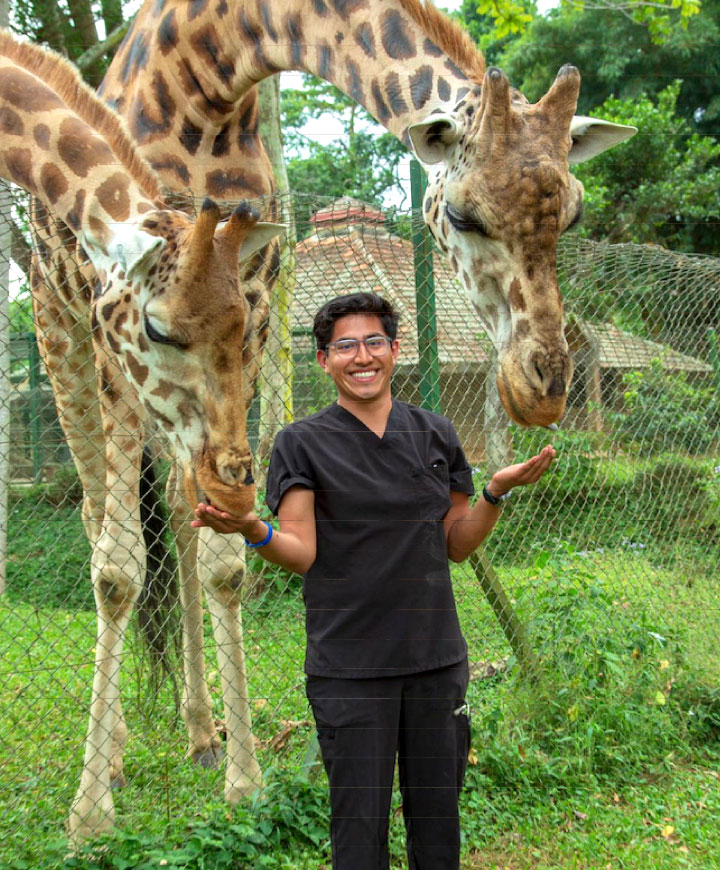
Henry Ascencio - Uganda
Henry traveled to the Uganda Wildlife Education Center—a zoo, rescue, and rehabilitation center that provides care to many wild African animal species including lions, white rhinos, buffalo, shoe-bill storks, and more. His research project focused on determining if there was an association between stereotypic behavior and intestinal parasite prevalence in captive African lions at the center. The experience helped him realize the importance of international collaboration and solidified his goal of becoming a wildlife veterinarian.
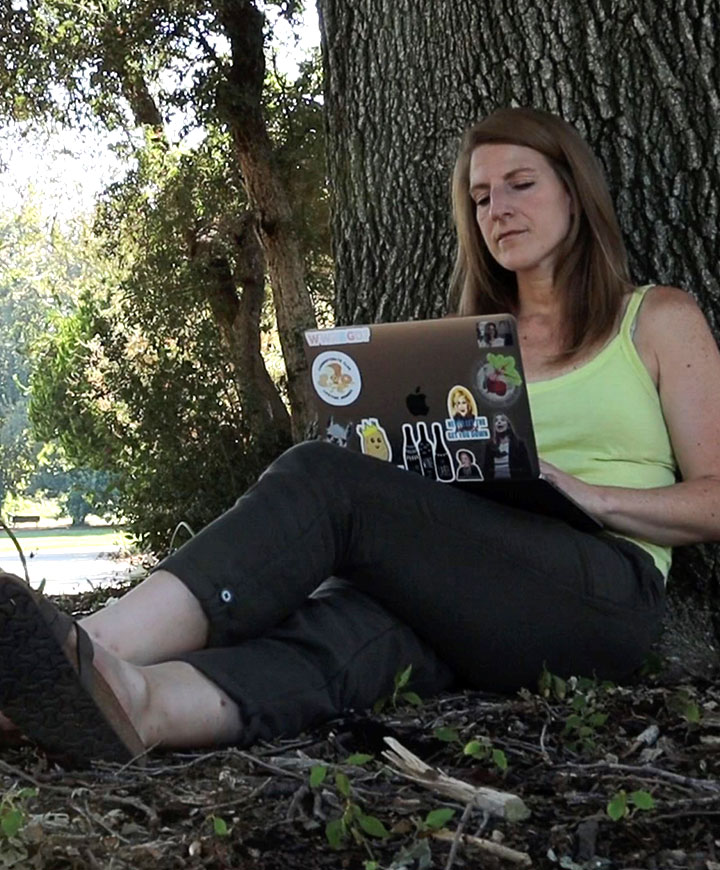
Claire Bellis - South Korea (virtually)
Claire conducted a survey to analyze South Korean residents’ reactions to government intervention regarding stray cats in Seoul. Little is published regarding the recent increase in feline companionship in Korea. Her survey received approximately 11,000 responses and she set up zoom interviews with veterinarians, cat owners, and veterinary students. Despite not being able to travel to South Korea in person, Claire was grateful to connect with people from another culture to share experiences, both related to the project and not.
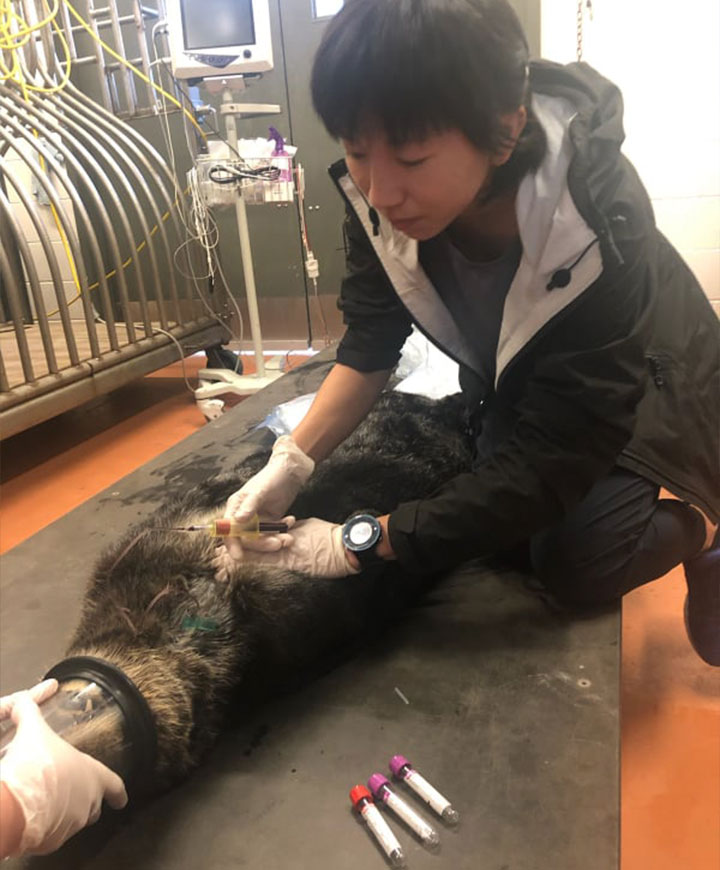
Joie Lin - British Columbia
Joie externed at the Vancouver Aquarium and Animal Health Centre and also worked with the Marine Mammal Rescue Centre and the British Columbia Marine Mammal Response Network. Overall, the externship enabled me to gain valuable insight about aquarium medicine, marine mammal pathology, and fieldwork while also building my cultural awareness. At the aquarium, she learned how to manage cases and develop diagnostic and treatment plans. She also had the opportunity to work with harbor seal pups and assist in field necropsies. Overall, externing at the aquarium expanded her comfort level for working with aquatic species.

Amber McElhinney - Kentucky, Connecticut and New Jersey
Amber’s initial plan of traveling to Australia to gain clinical experience in equine sports medicine shifted to the eastern part of the United States. While in Kentucky, she assisted with lameness evaluations, treatments for upper airway diseases, and podiatry cases. She even got to scrub in and assist on her first surgery. In Connecticut, she helped at a sports medicine practice with diagnostic imaging such as radiography, ultrasound, and nuclear scintigraphy. Her last week was spent in New Jersey where she assisted on evening treatments for the inpatient horses and helped with emergency work-ups.
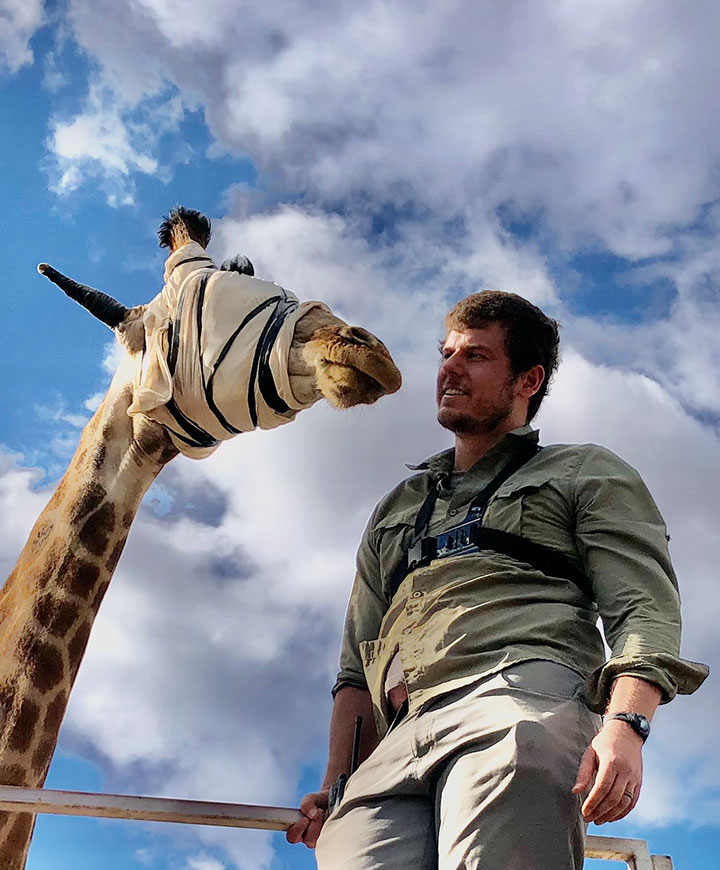
Calvin Price - South Africa
Calvin visited South Africa to conduct a clinical-based research project to validate an automated hematology machine for white rhino that could ultimately enhance wildlife veterinarians' ability to diagnose and treat these animals in the field. He was also able to assist on multiple wildlife procedures with a giraffe, multiple small ungulates (impala, golden wildebeest, bushbuck, rooi hartebeest), an elephant, and a buffalo.
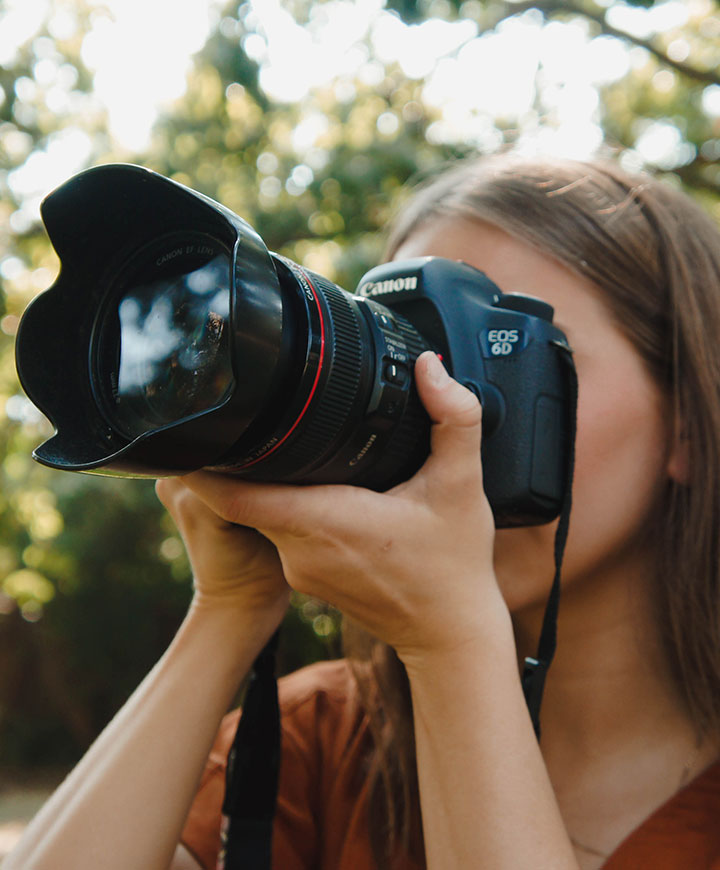
Samantha Pulgini - Mozambique (virtually)
Despite not being able to travel to Mozambique, Samantha was able to combine her passion for animal conservation with photography as she partnered with the Niassa Carnivore Project (NCP) to develop teaching materials essential to its success. The aim of this ongoing project is to educate NCP team members on technical and creative photography skills as well as the role of visual storytelling in advancing conservation initiatives. Samantha is planning for a future trip to the NSR, where she intends to implement the remainder of the project and lead the conservation photography course in person.
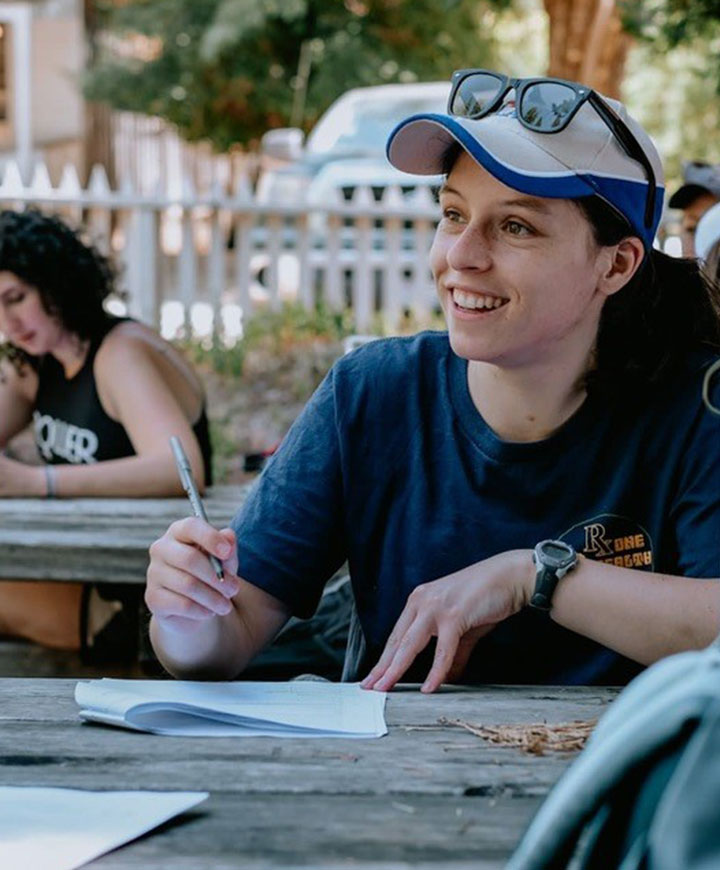
Melissa Thurston - California
Due to the COVID-19 pandemic, Melissa shifted her initial plan of traveling to Tanzania to study the prevalence of Newcastle Disease in poultry to focus on an outbreak closer to home. She worked with her mentor, Dr. Rodrigo Gallardo, and the California Avian Health Education Network in Southern California to create the Gamefowl Wellness Program that screens chickens for diseases and educates backyard poultry owners about different management practices. She also spent two weeks in various sites around the state with the Rx One Health course.
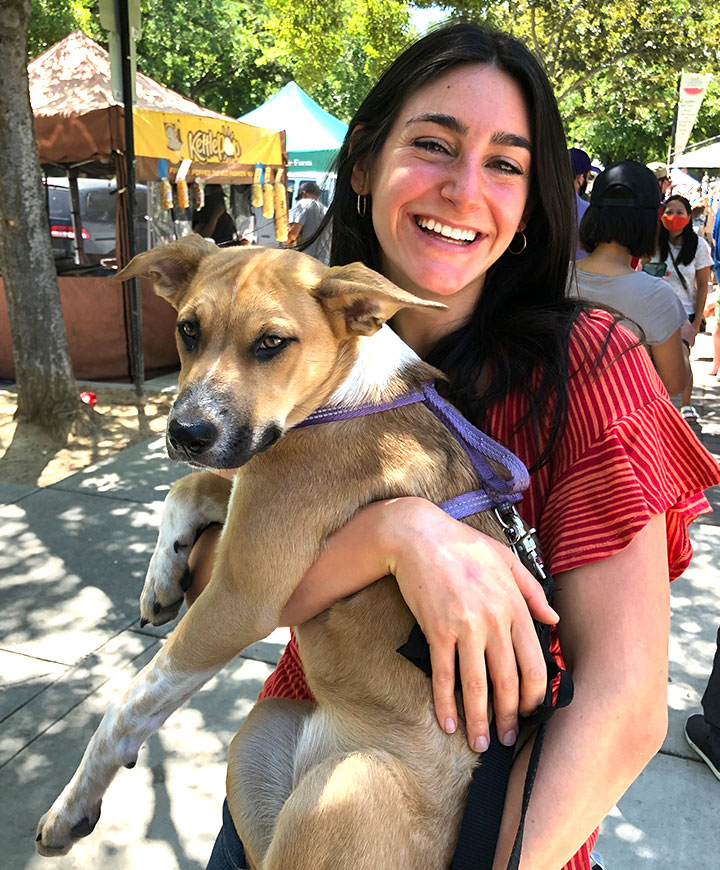
Iliana Zisman - Bolivia (virtually)
Iliana conducted an electronic survey of clinics and rehabilitation centers in the Chiquitanía Region of the Bolivian Amazon Rainforest. In August and September of 2019, the area experienced its worst fires since 2010. She sought to characterize the impact of the fires on the wildlife presenting for care. Her project specifically looked into the types of species presenting to centers, the kinds of injuries they sustained, treatments, and the course of their rehabilitation. Her interviews supplied insight that furthered not only her biological, ecological, and medical understanding of this crisis, but left her awe-inspired at the dedication and tireless work of these individuals to make a difference.
- 2020
-
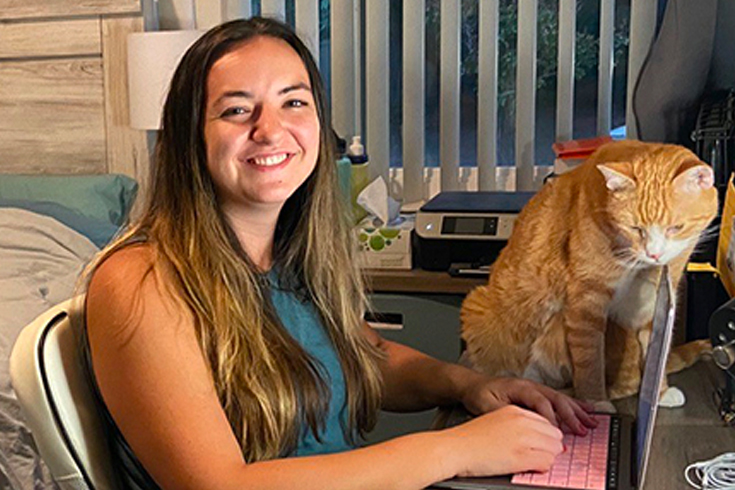
Amber McElhinney - California
When Amber’s initial plans of traveling to Australia to conduct research on Thoroughbred racehorses had to be adjusted, she shifted focus to gaining hands-on clinical experience at Steinbeck Peninsula Equine Clinic in Monterey County and Loomis Basin Equine Medical Center in Penryn. She was also able to conduct research in Dr. Sue Stover’s lab at UC Davis, which remains ongoing. She gained valuable experience both in clinical and research settings that will help in her future career as an equine veterinarian.
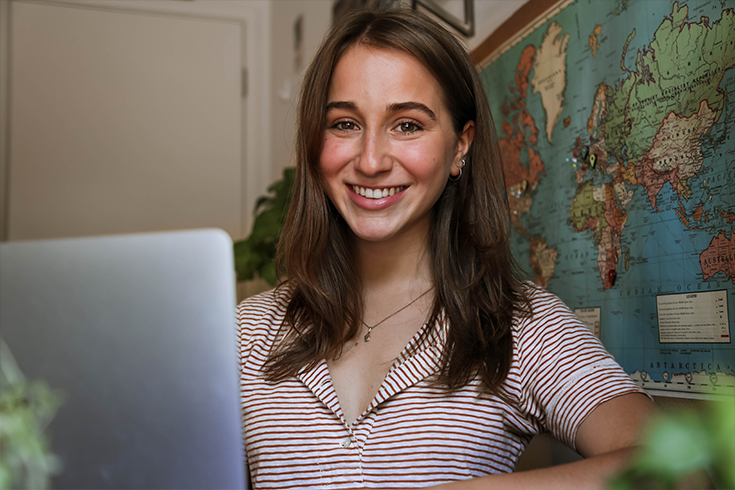
Samantha Pulgini - Madagascar (virtually) & California
Samantha’s original plan to visit Madagascar shifted focus to building a website to educate students around the world on lemur history and biology, conservation issues and solutions, and human impacts on the environment. She also visited Clover Valley Ranch in the Northern Sierra Nevada to document landscape changes and evidence of healing throughout the meadow. Her experiences allowed her to explore the intersection of her creative and veterinary interests, investigate unfamiliar topics, and collaborate with experts specializing in various areas of study.
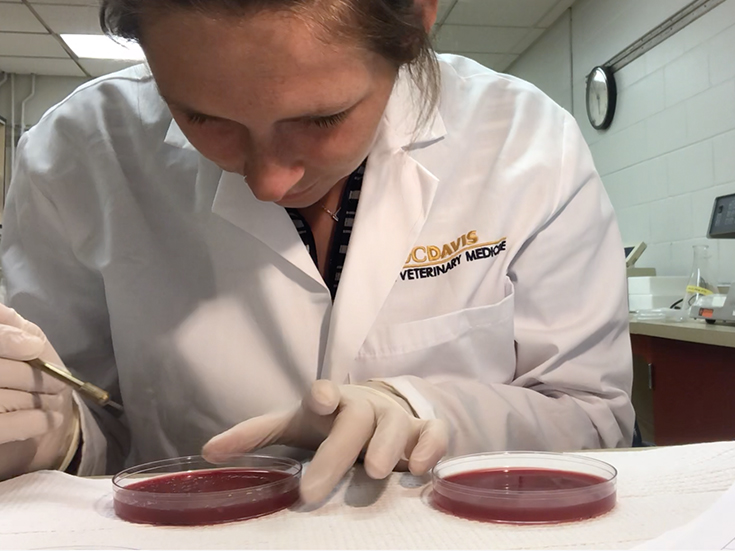
Anett Szczepanek - Tulare, CA
Anett shifted her initial plan of investigating the prevalence of antimicrobial resistance in Malawi chickens to working on two projects centered around antimicrobial resistance in dairy calves at the school’s Veterinary Medicine Teaching and Research Center. The first project focused on quantifying antimicrobial drug usage from pre-weaned dairy calves; the other aimed to identify the antimicrobial resistance of Staphylococcus and Streptococcus species in bulk tank milk samples from various herds across California.
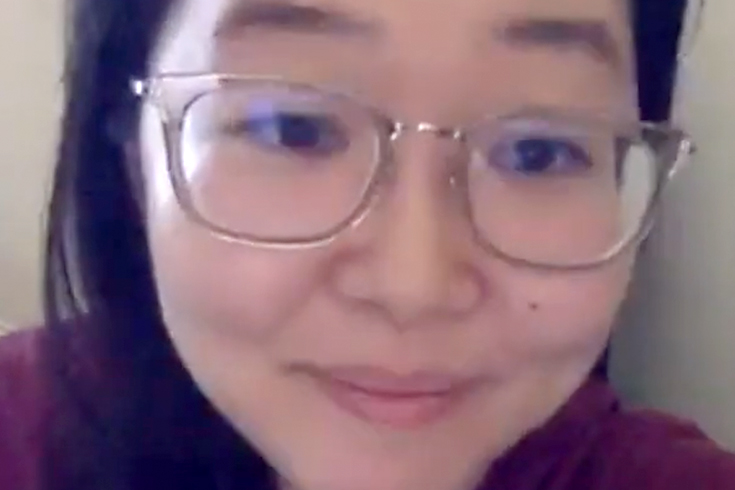
Canna Takise - Japan (virtually)
Canna studied the relationship between children diagnosed with ADHD (Attention Deficit Hyperactivity Disorder) and their pet cats in Japan. She met politicians, pediatricians, caretakers, parents, board members of non-profit animal rescue organizations, and individuals with all sorts of backgrounds. Not only was she able to improve her communication skills, but many of the people she and colleagues met with were willing to share their own perspective of special education in Japan and animal therapy.
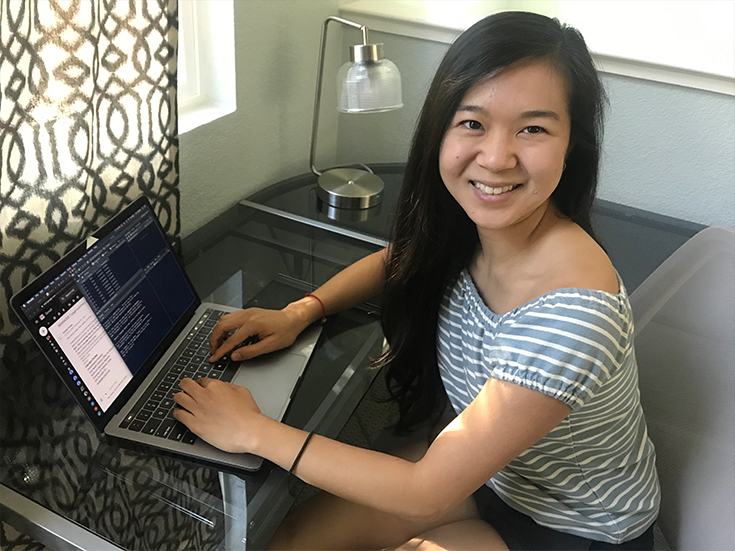
Sophie Zhu - Brazil (virtually)
Sophie conducted her research to identify environmental or habitat risk factors for maternal exposure to Toxoplasma gondii in Brazil remotely. She coordinated with researchers in Rio de Janeiro to collect and map elevation, temperature, vegetation, and human population density data in the first part of the summer while also learning Portuguese in her free time. The opportunity allowed her to explore human and environmental epidemiology, advance her dissertation research, and build international research relationships.
- 2019
-
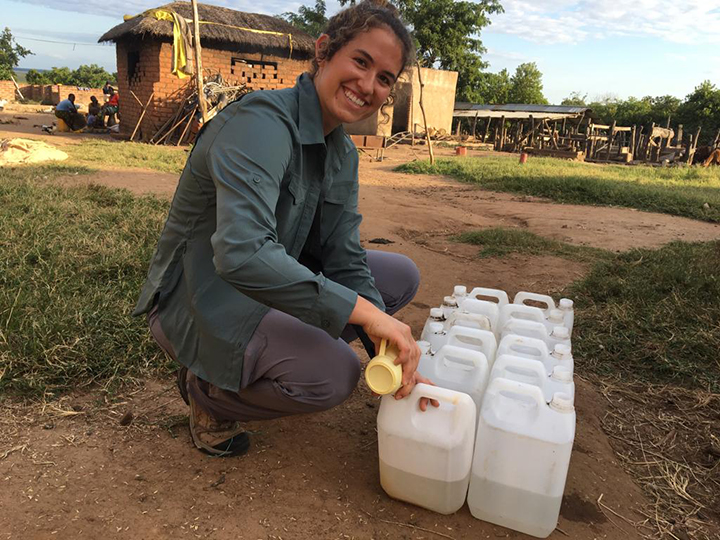
Jamie Sebastian - Tanzania
Jamie Sebastian traveled to Tanzania where she conducted research on the primary mosquito vector for Rift Valley fever that affects both humans and animals. Not only was Jamie able to perform fieldwork, she also had the opportunity to learn about mosquito larvae collection.
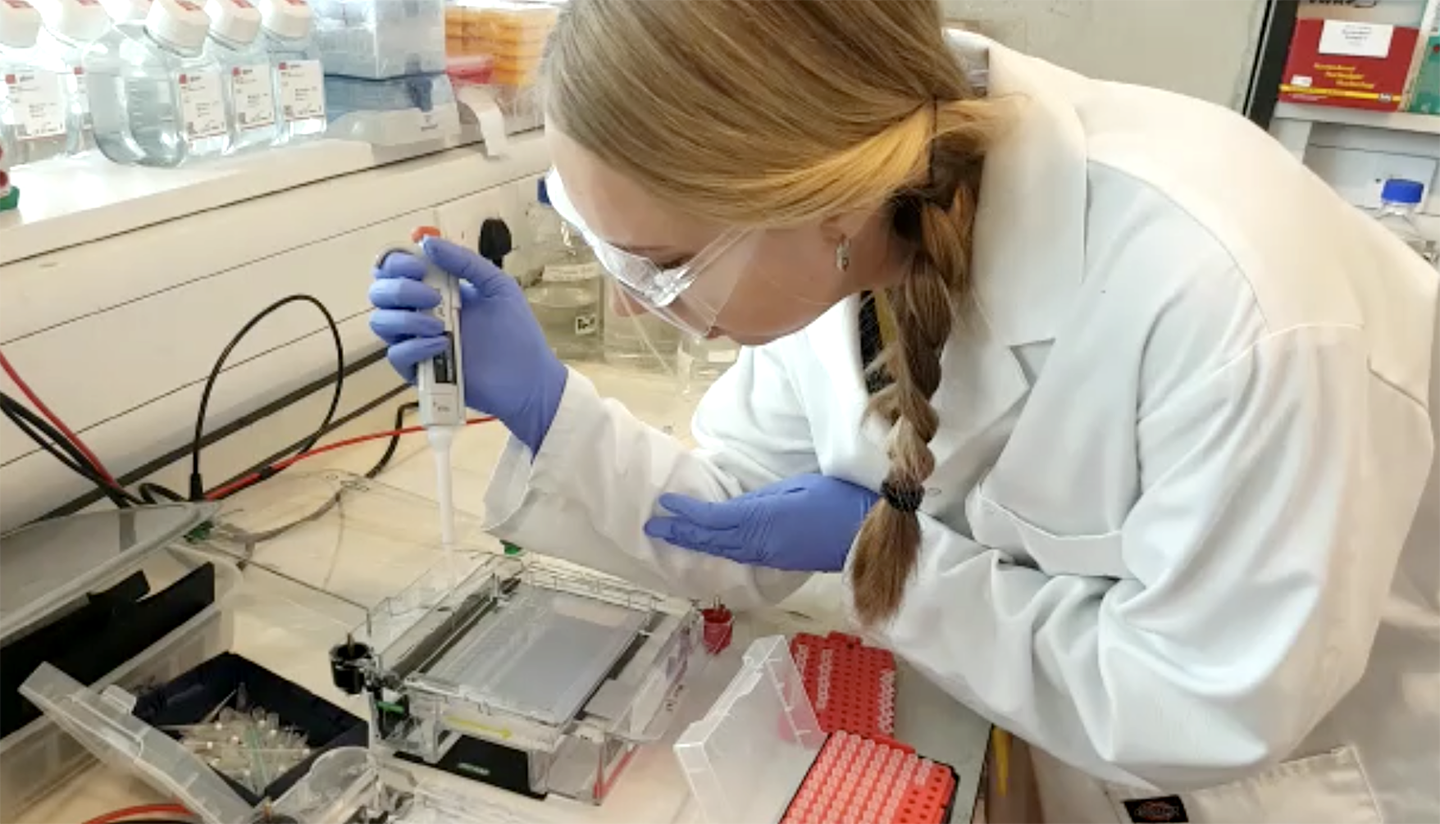
Alexandra Grillos – England
Alexandra Grillos traveled to England where she conducted research at the Royal Veterinary College’s Equine Pregnancy Laboratory. She studied the genetics of early pregnancy loss in thoroughbred mares.
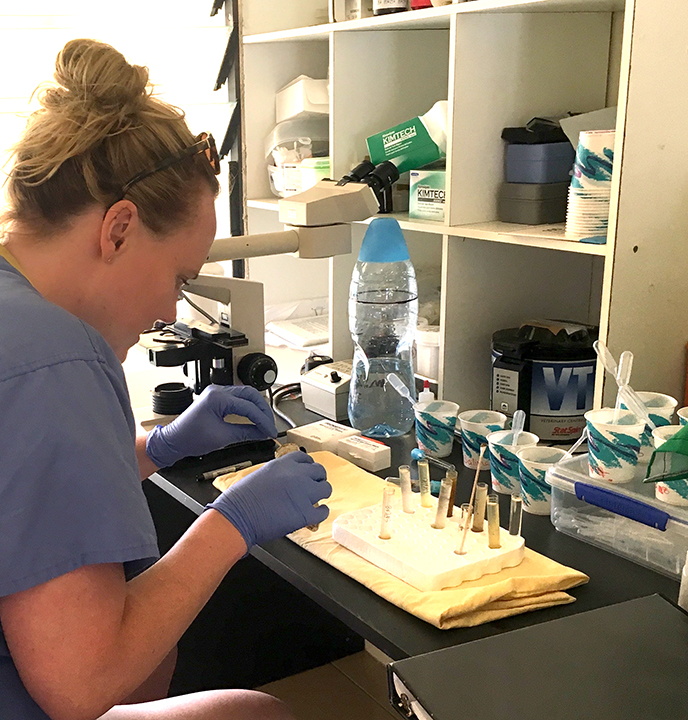
Claire Stuhlmann - Rarotonga
Claire Stuhlmann spent her summer on Rarotonga in the Cook Islands, researching intestinal parasites and volunteering at the Te Are Manu Veterinary Clinic. She was able to complete her own research project investigating the prevalence and distribution of intestinal parasites in dogs on the island.
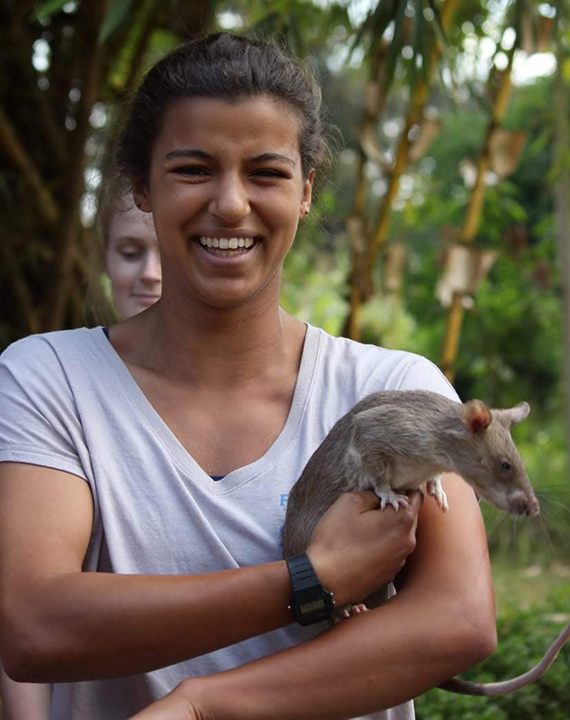
Saba Zewdie - Tanzania
Saba Zewdie traveled to Tanzania to analyze the Rift Valley Fever Virus (RVFV) with a One Health approach. During the first half of the summer, Saba analyzed seroprevalence and risk factors, such as age or location, for RVFV exposure in livestock, humans and mosquitoes. During the second half, she participated in the Rx One Health course.
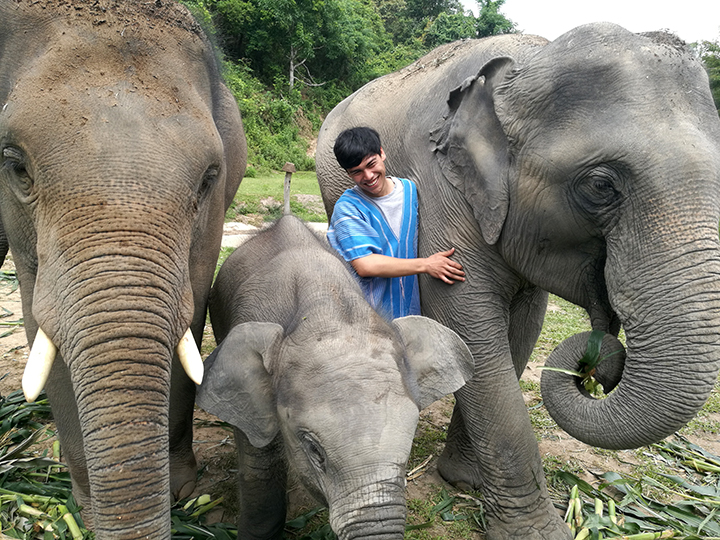
Tanner Talan – Thailand
Tanner Talan traveled to Thailand to work with the faculty of Veterinary Medicine at Kasetsart University, studying elephant endotheliotropic herpesvirus 1 (EEHV1) and performing treatments with the exotic animal veterinarians. Tanner’s research project aimed to analyze the genetic diversity of EEHV1 in six fatal cases from elephants in Thailand.
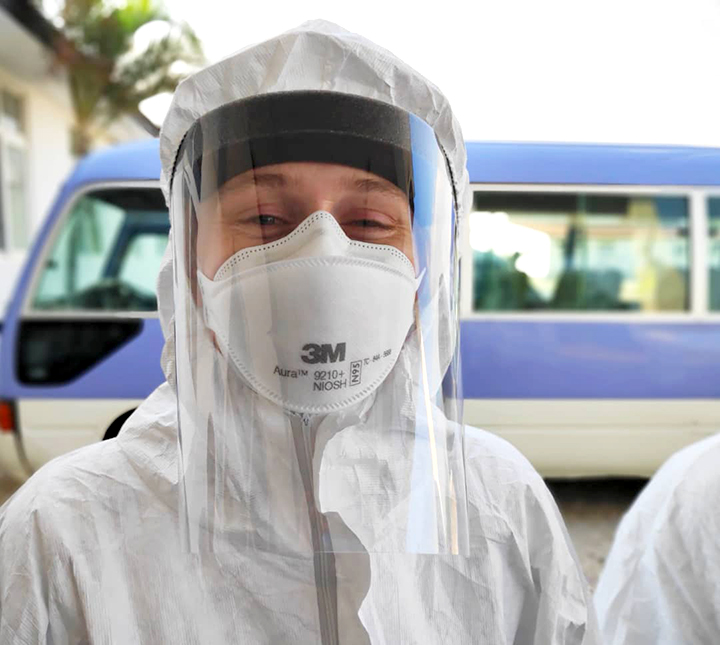
Cara Newberry - Tanzania
Cara Newberry traveled to Tanzania where she developed a research project with the Health for Animals and Livelihood Improvement (HALI) team to complement the Rx One Health course. Cara attended local government meetings and worked with the TVLA laboratory to isolate E. coli from samples where she was able to test it for susceptibility to seven commonly used antibiotics.
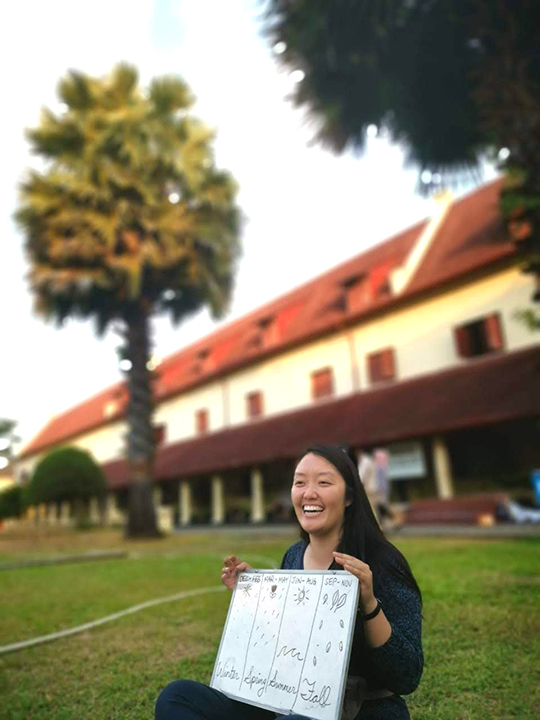
Stacy Kim - Indonesia
Stacey Kim traveled to Indonesia to conduct research in aquaculture. Her main objective was to test Trichodina, a type of protozoal parasite that has the potential to reduce the respiratory capacity of fish and lead to disease. Stacey focused her research on testing different treatment methods that would be cost effective and easy to implement.
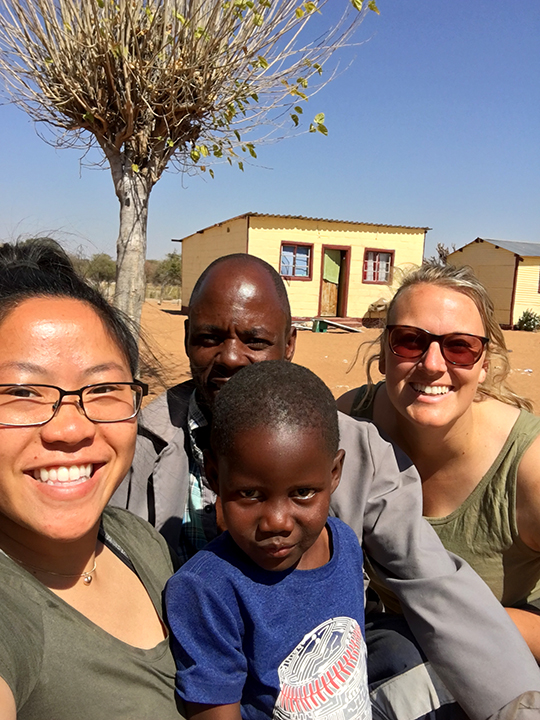
Jill Huynh – Namibia
Jill Huynh traveled to Otijiwarongo, Namibia as a veterinary intern at the Cheetah Conservation Fund (CCF). Jill helped veterinarian Dr. Robin Gieling administer rabies vaccines to the cats and dogs of the Eastern Communal Conservancies while camping in the African bush. Additionally, Jill spoke to local famers about wildlife conservation and the importance of their role in saving species from extinction.
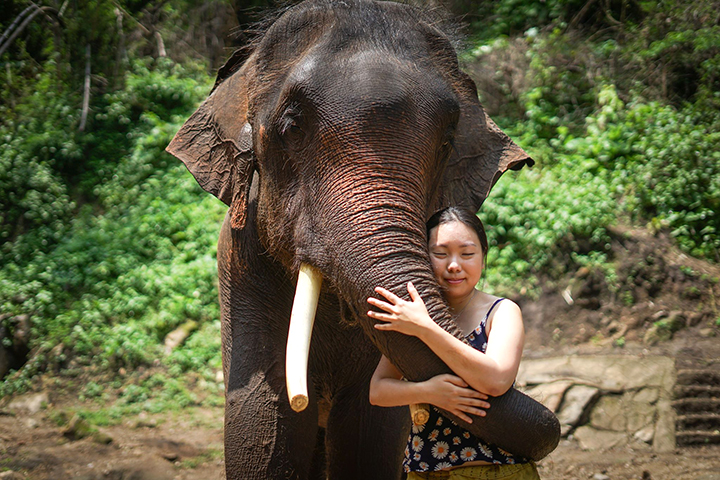
Tracy Hayward – Thailand
Tracy Hayward traveled to Thailand to conduct research on the effects of quality of life on the human-animal bond in Thai elephant keepers and tiger caretakers. Tracy also participated in an Asian elephant blood cross match research for plasma transfusion.
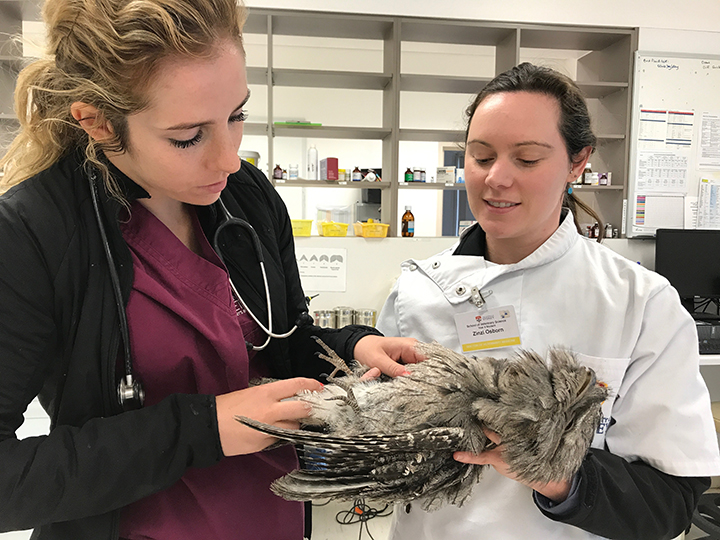
Amanda Garrick – Australia
Amanda Garrick traveled to Australia where she spent her summer in Sydney at the Avian, Reptile and Exotic Pet Hospital. Amanda learned about emergency wildlife care of birds and animals that are unique to Australia. and new species. While abroad, Amanda also had the opportunity to work remotely on a feline research project based in Sri Lanka.
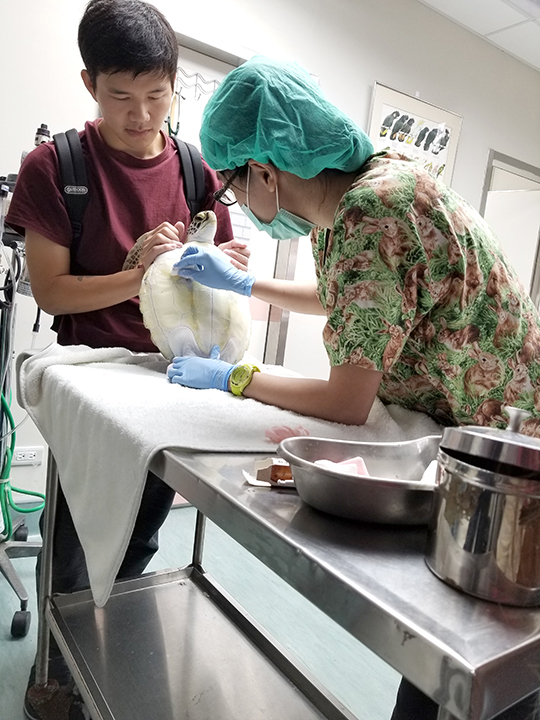
Anna Duh – Taiwan
Anna Duh traveled to Taiwan this summer to learn more about green sea turtles and their nesting sites on the islands off Taiwan’s coast. During the first half of the summer, Anna shadowed Professor I-Jiunn Cheng from the National Taiwan Ocean University in Keelung to learn about how his lab operates. During the second half, she researched Green Sea Turtle mothers and their nesting patterns at night.
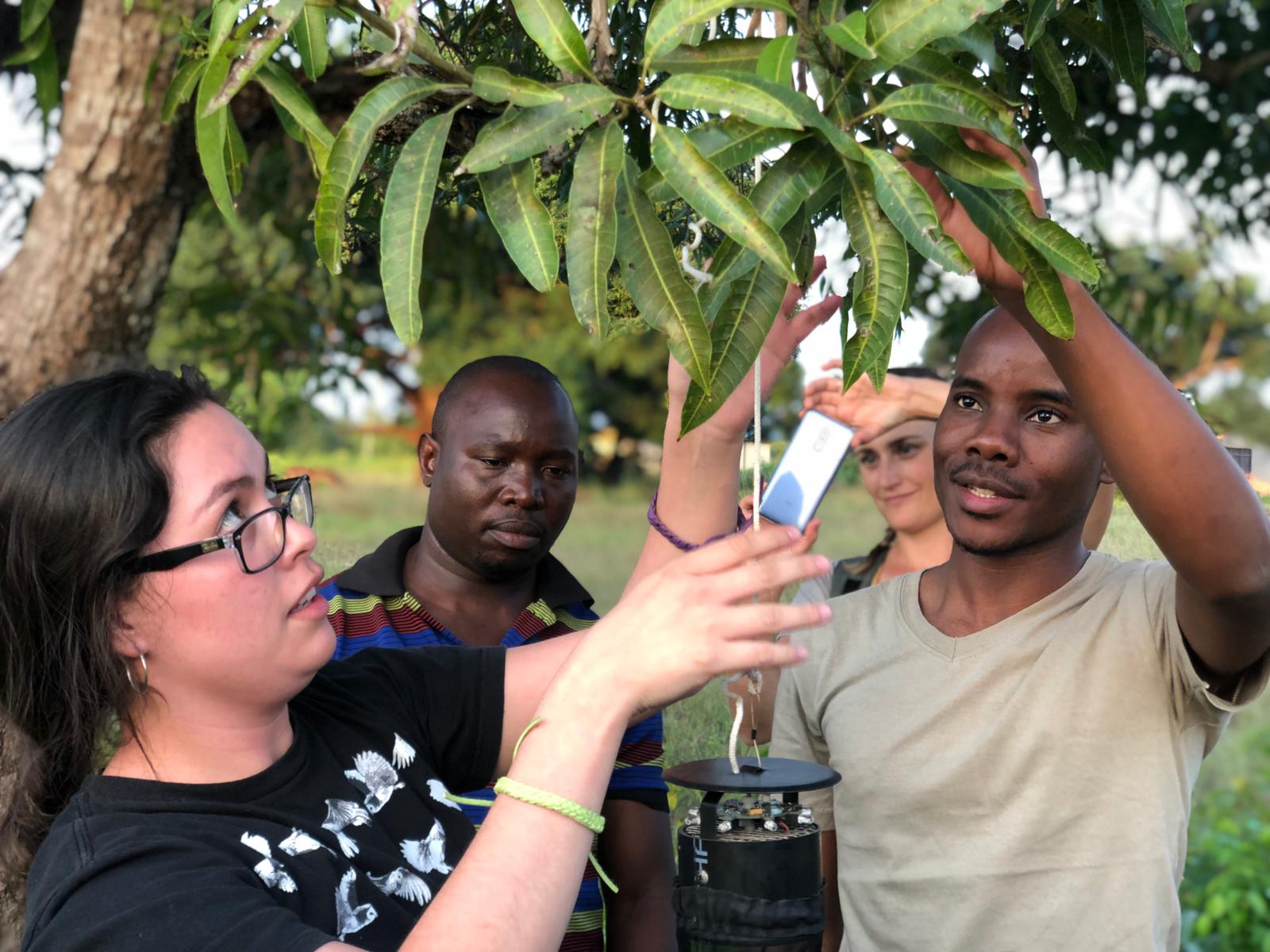
Ashley Birakos – Tanzania
Ashley Birakos traveled to Tanzania where she worked at Sokoine University of Agriculture in Morogoro to improve poultry health. She worked with the team to collect cloacal and oropharyngeal swabs from sick chickens at the two live bird markets in Morogoro to detect Newcastle Disease Virus.
- 2018-2015
- 2018 Summer Externships
2017 Summer Externships
2016 Summer Externships
2015 Summer Externships
Where Our Students Have Been
Since the 2014-2015 academic year, our office has helped more than 200 students pursue international education opportunities in over 50 countries! Read about the program history here.
Click on the pins on the map below to find out where students have participated in international research and externship experiences.
